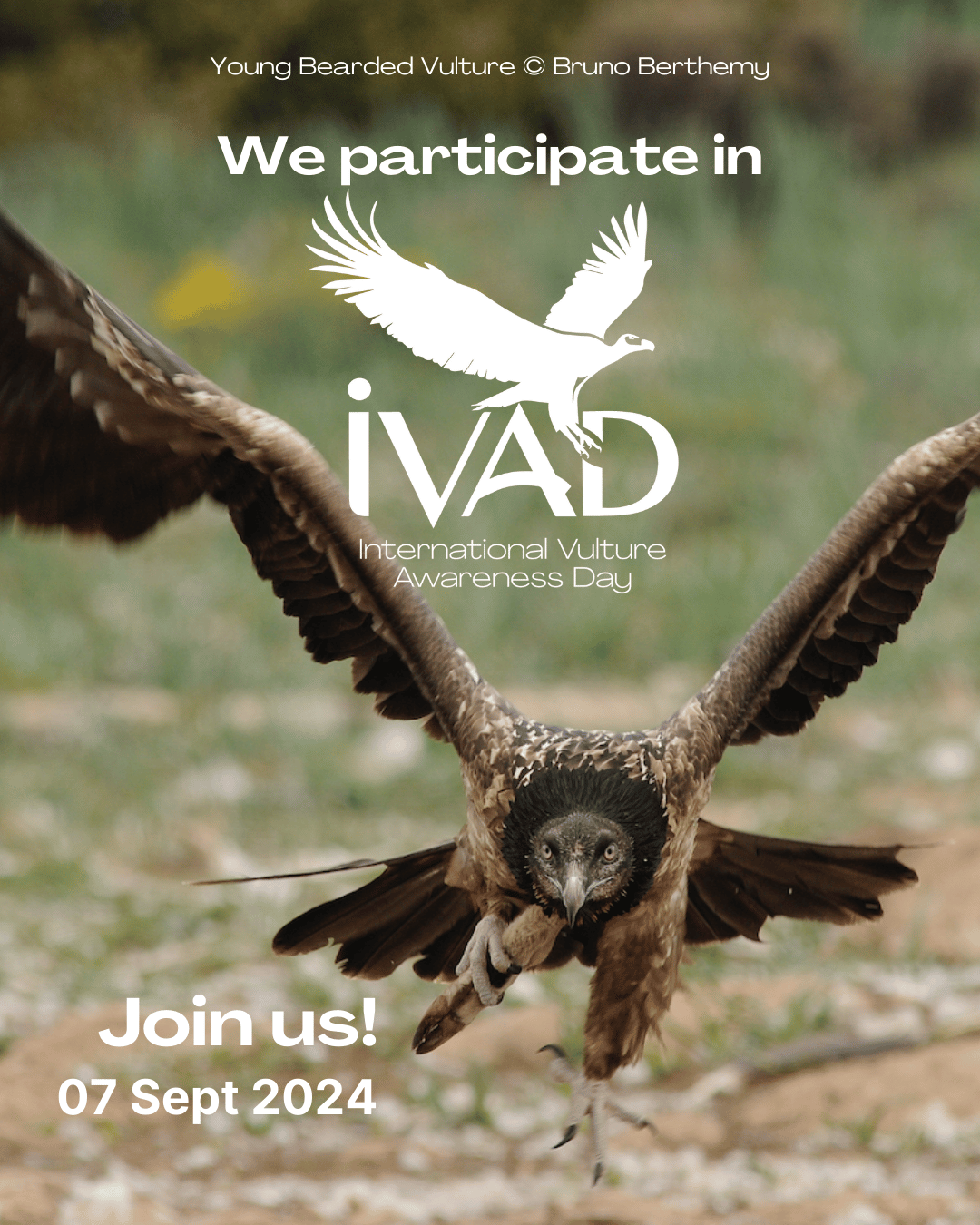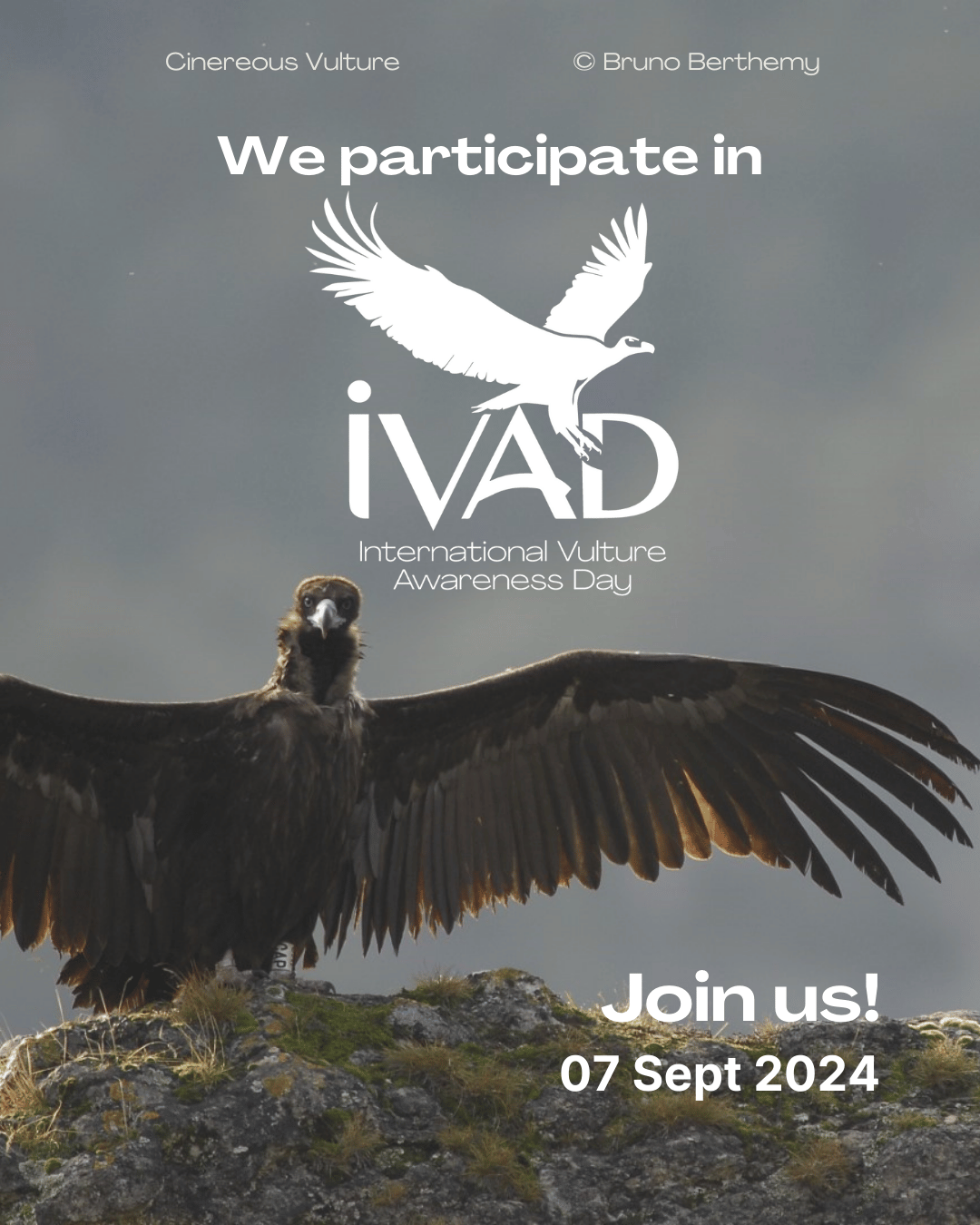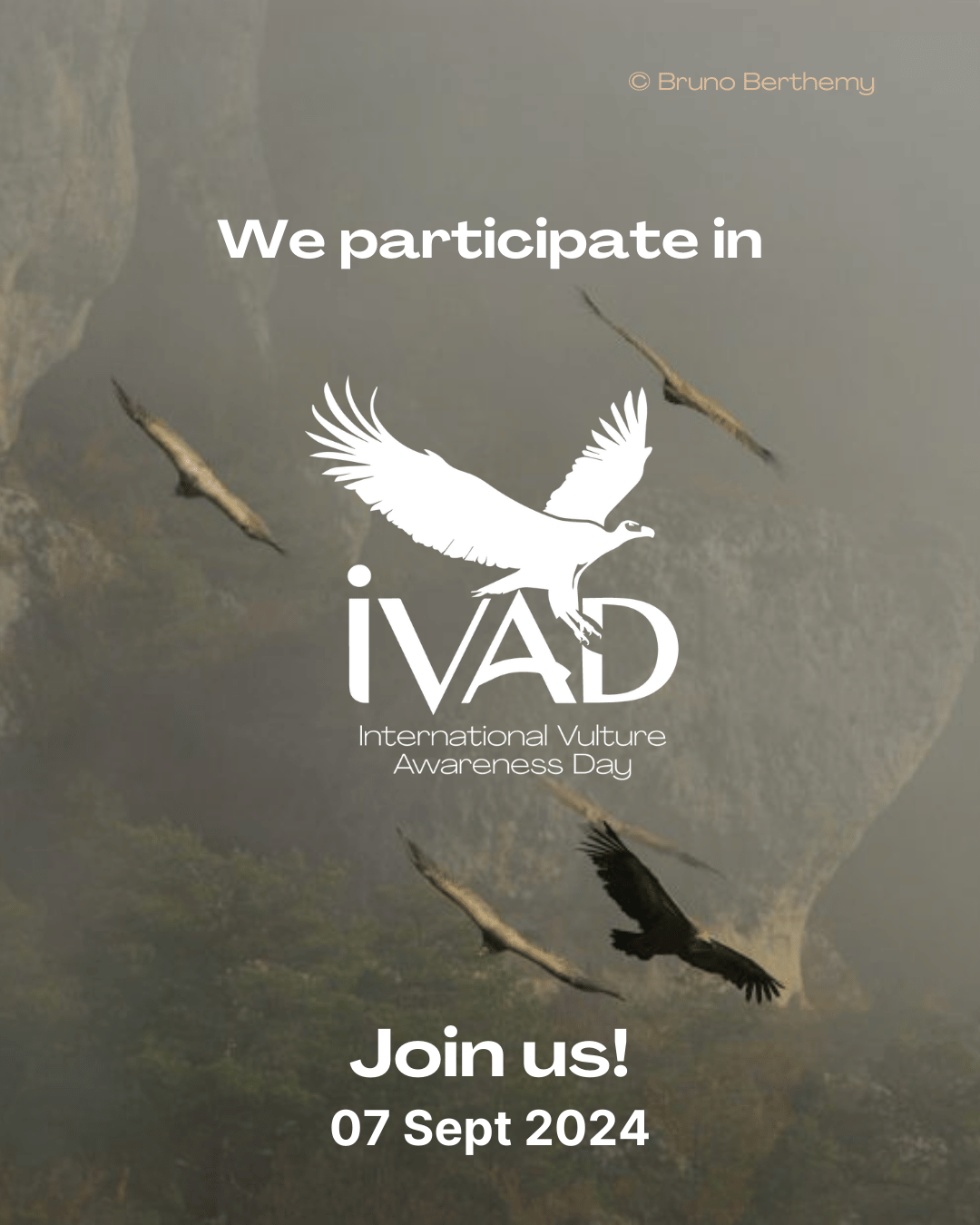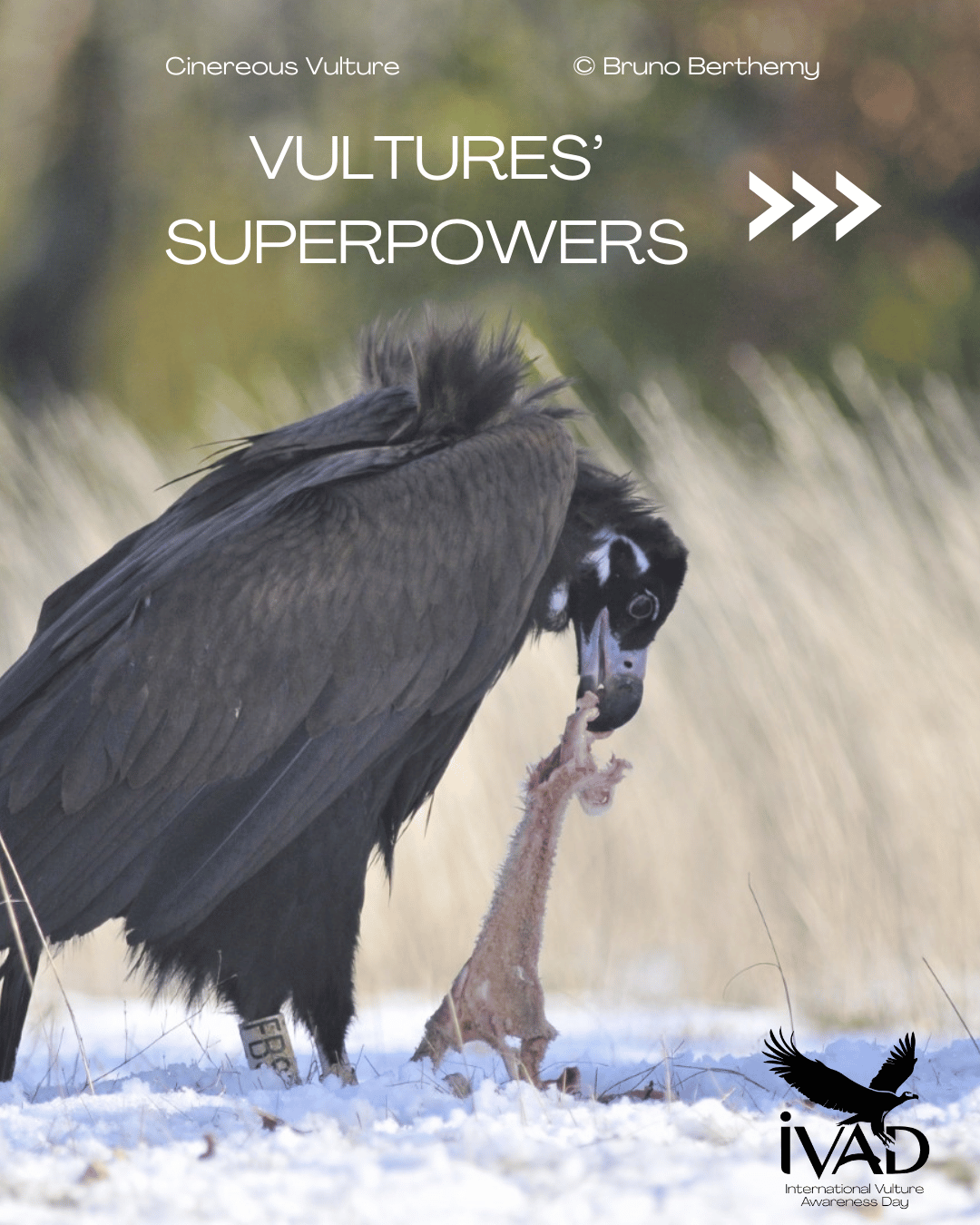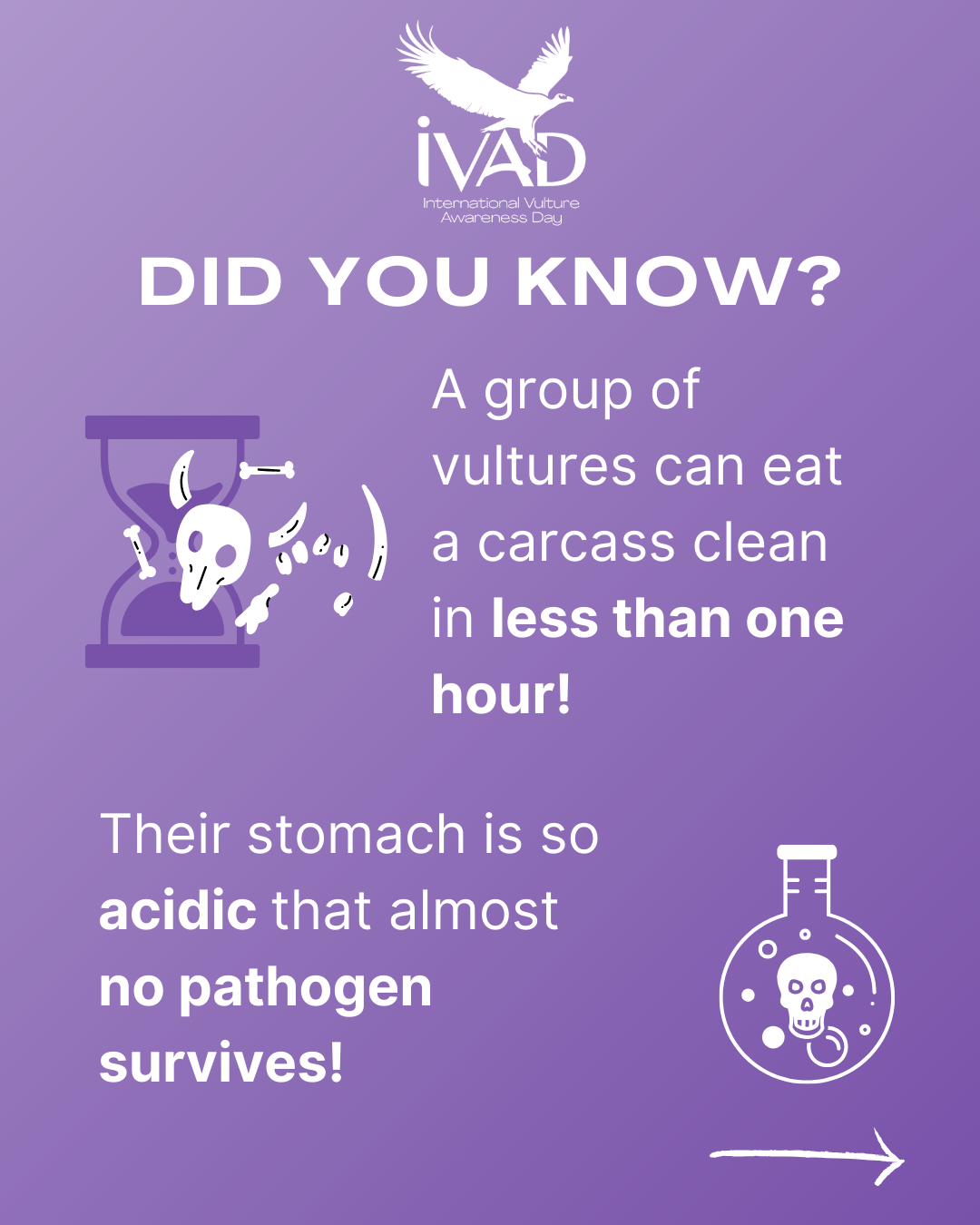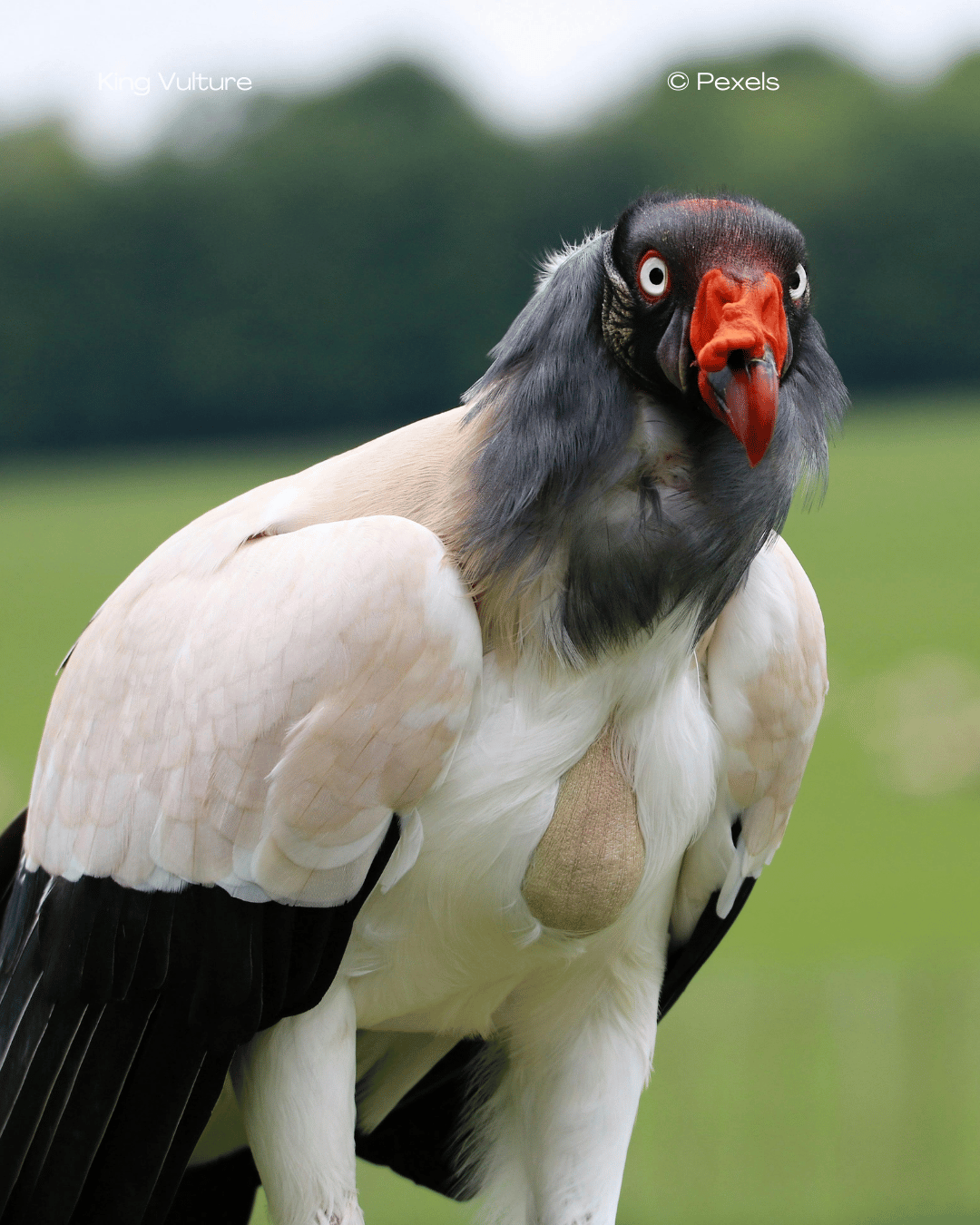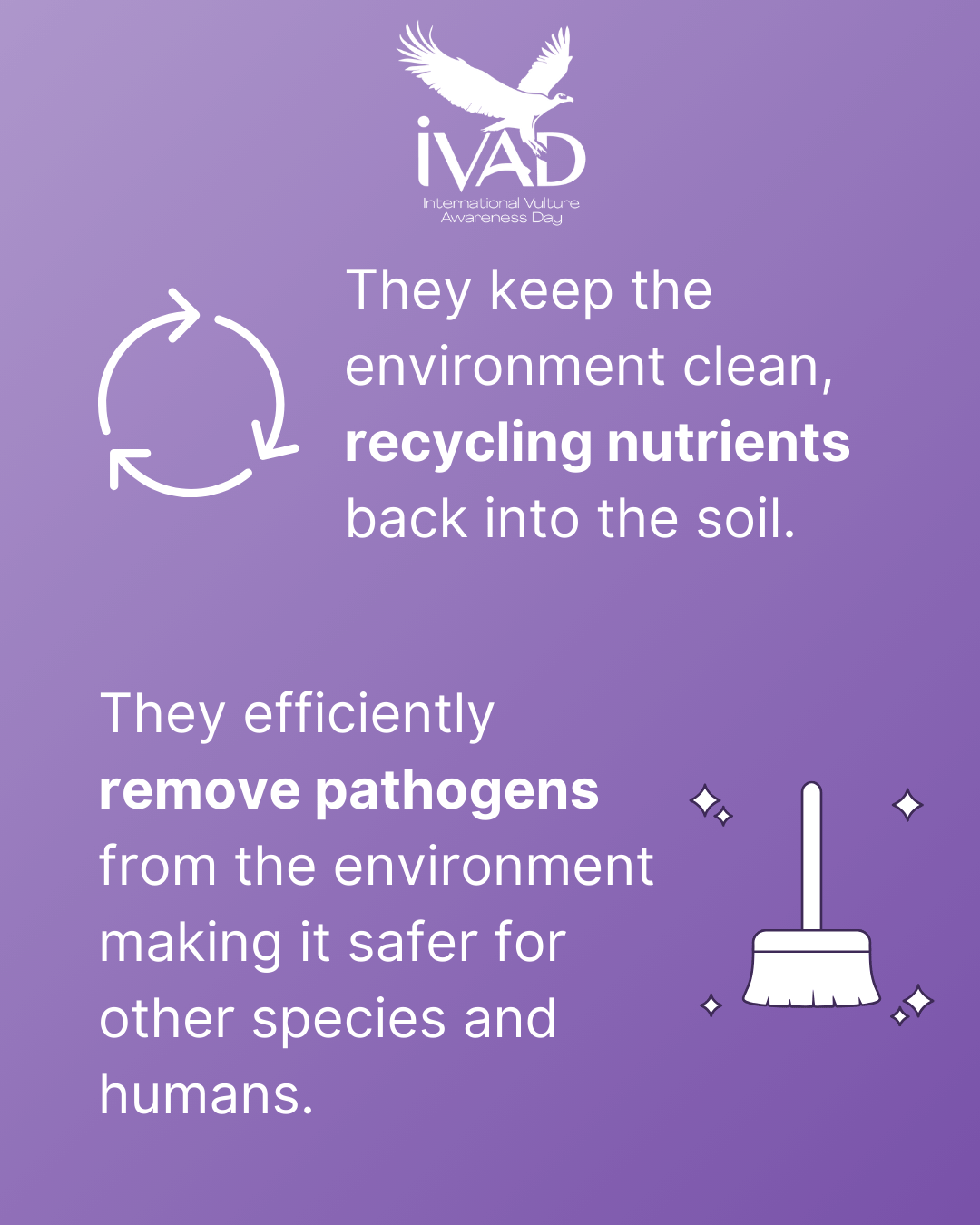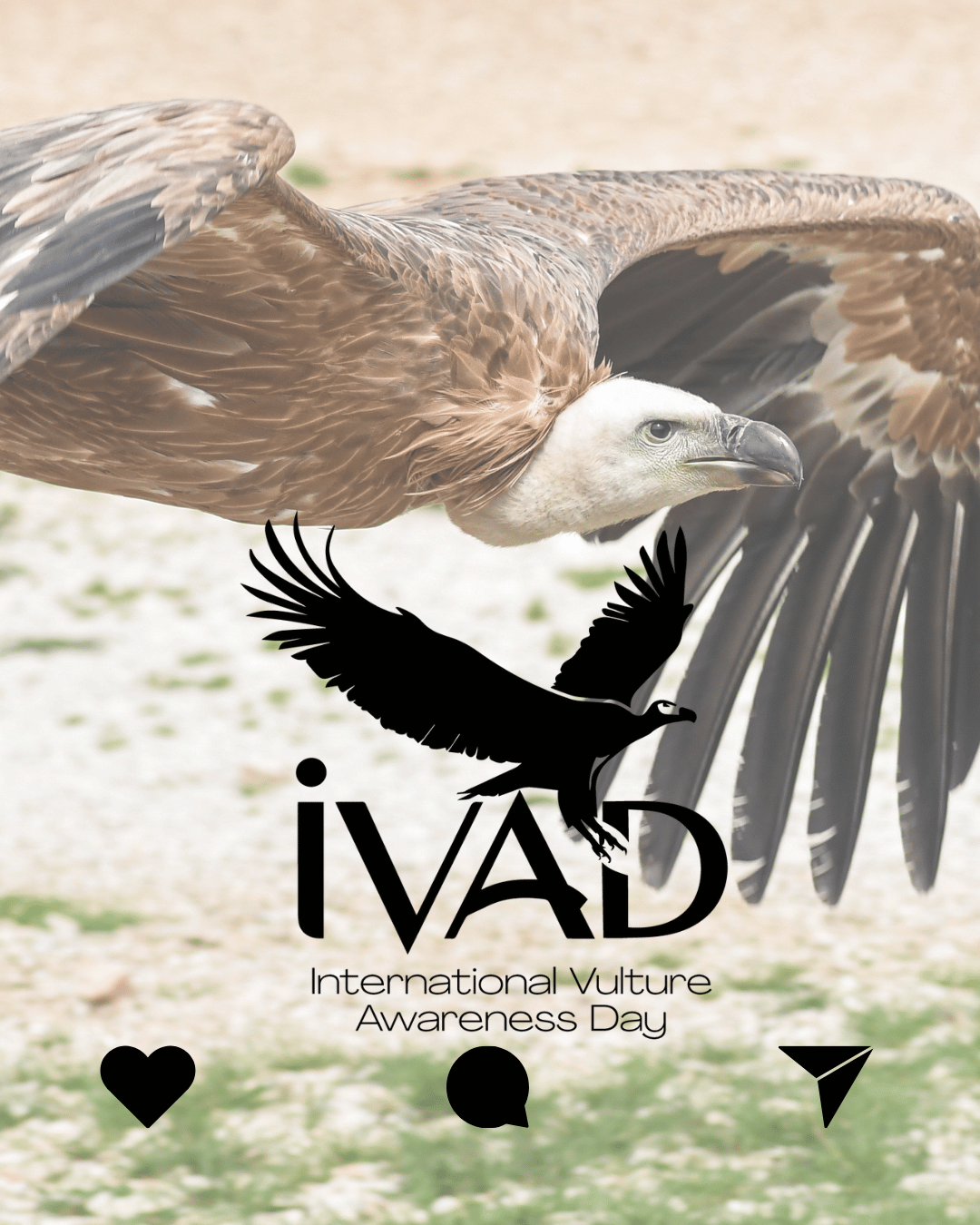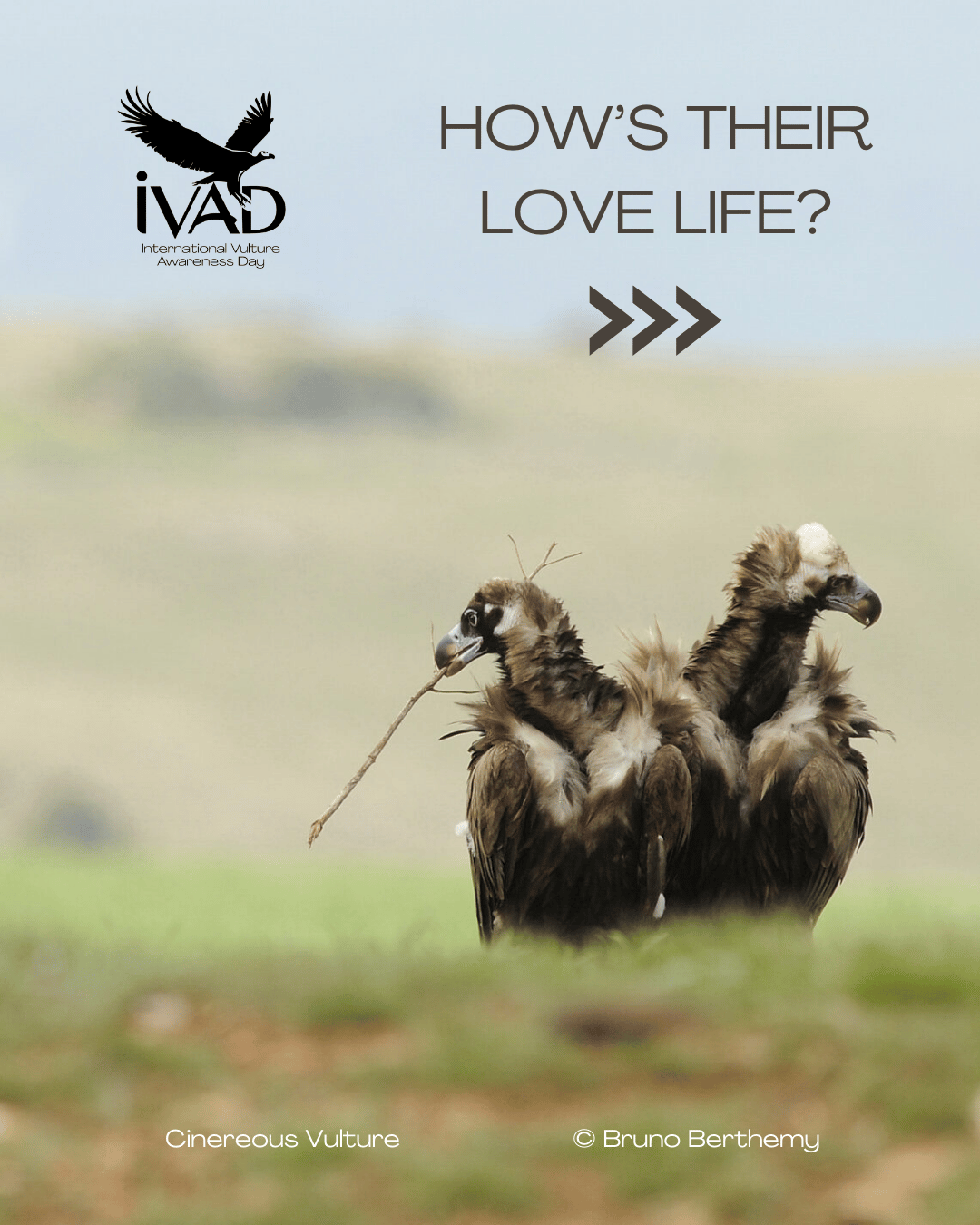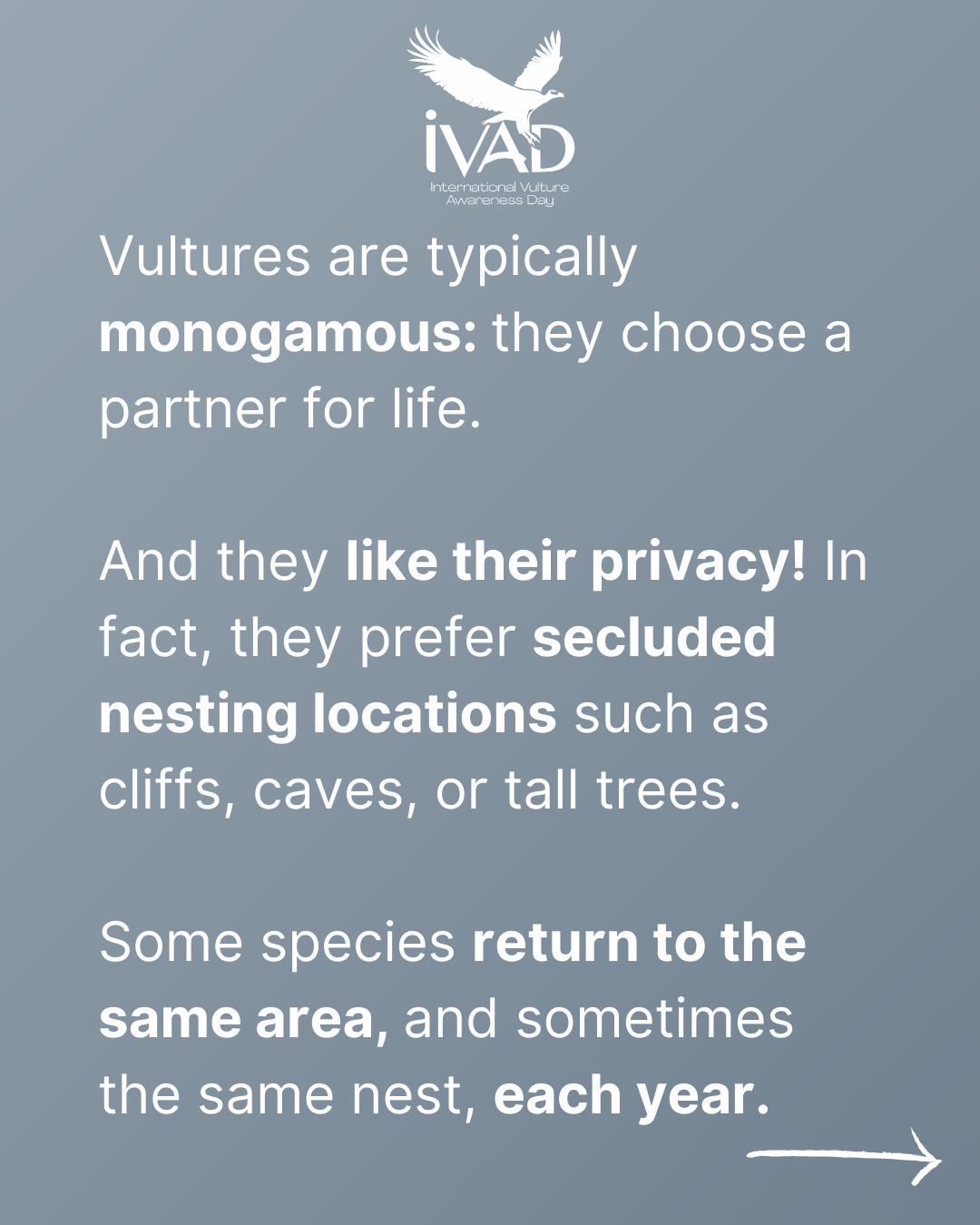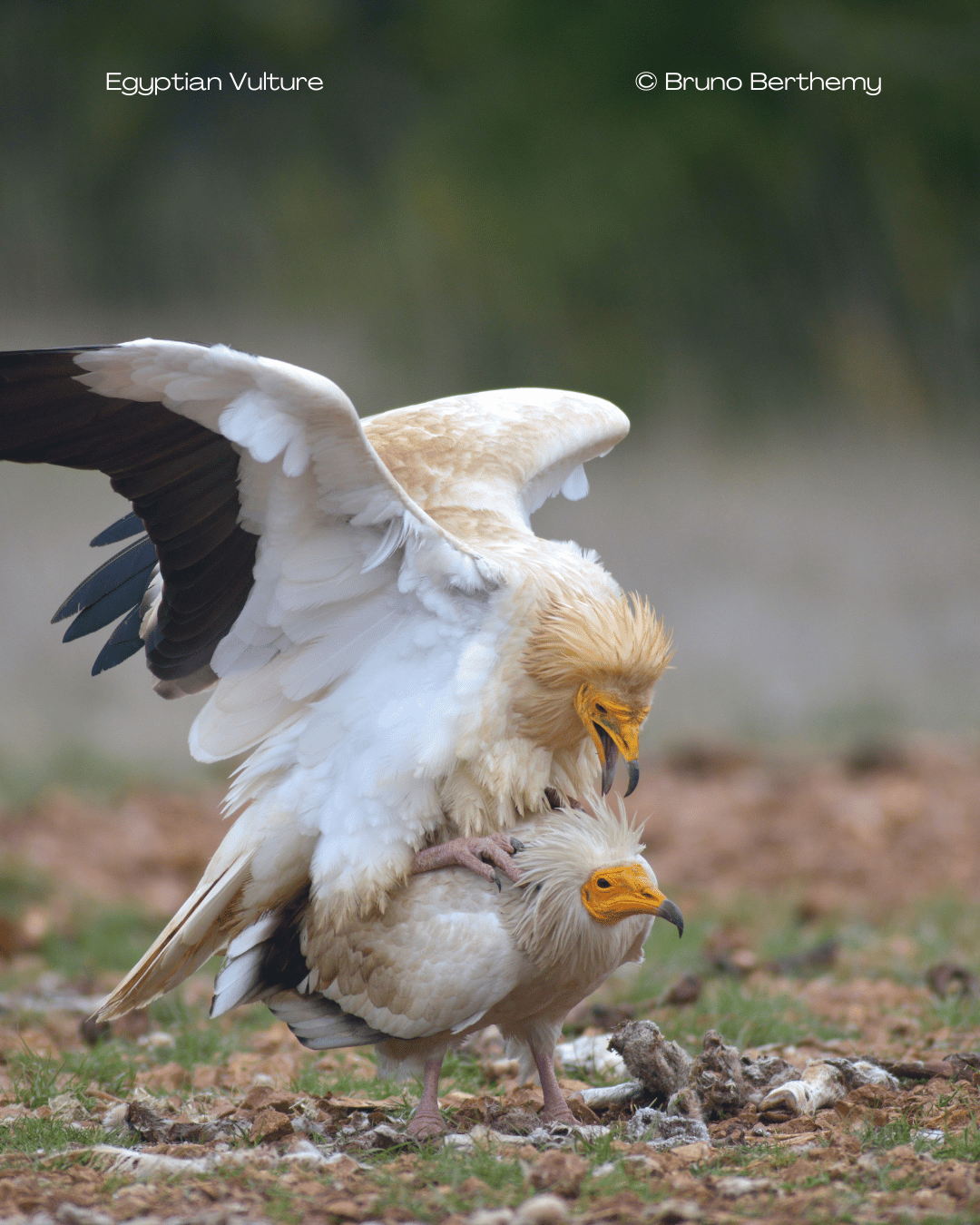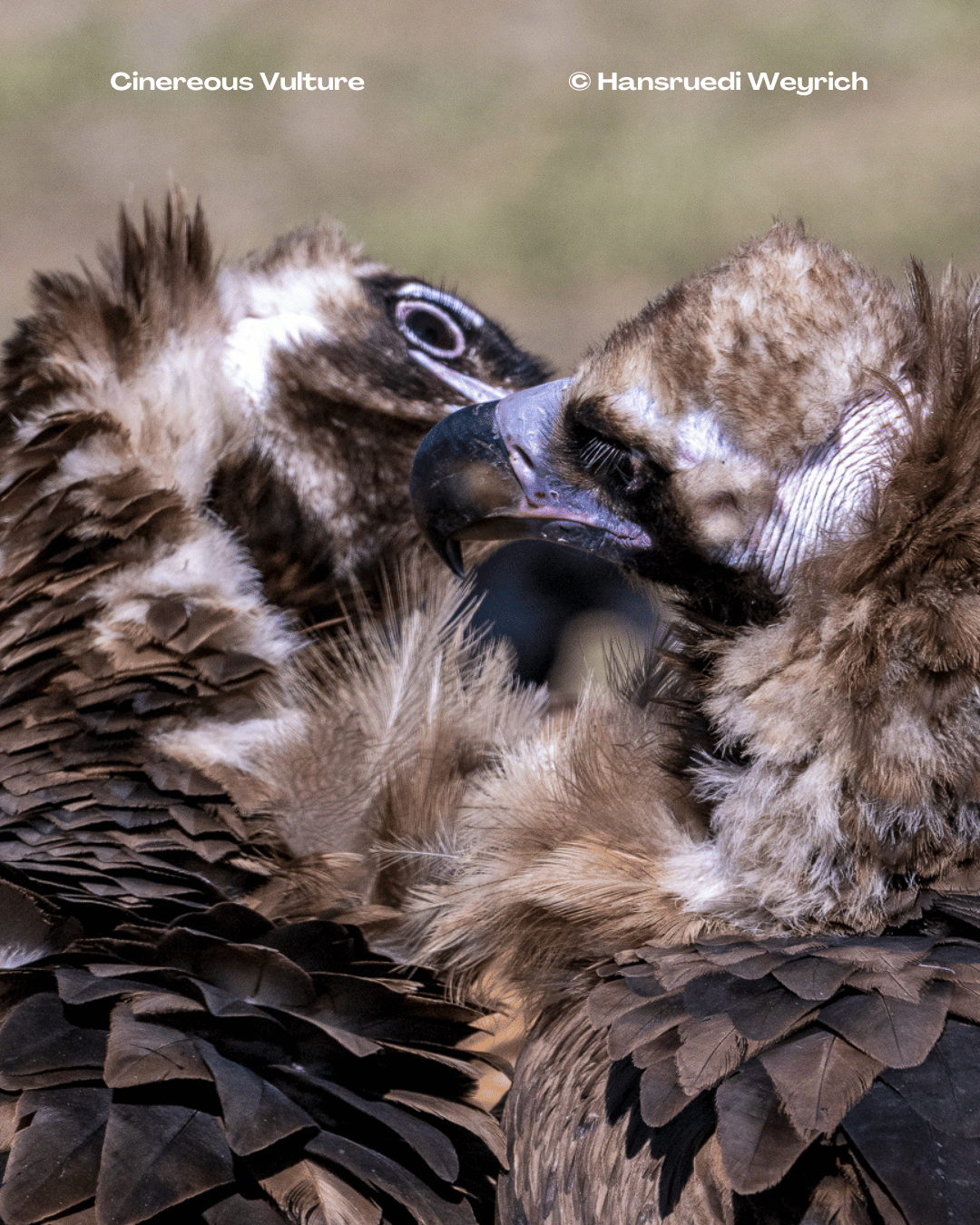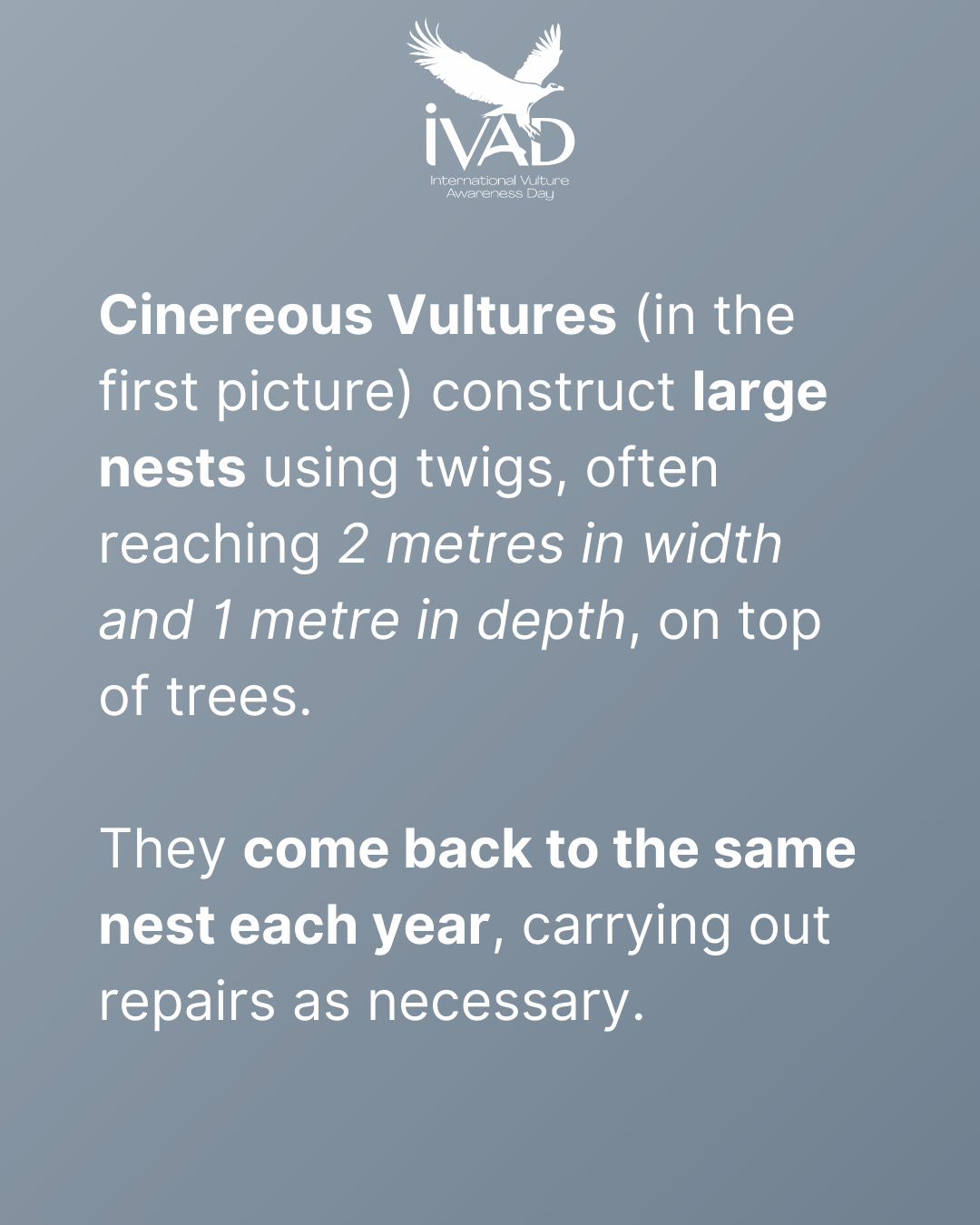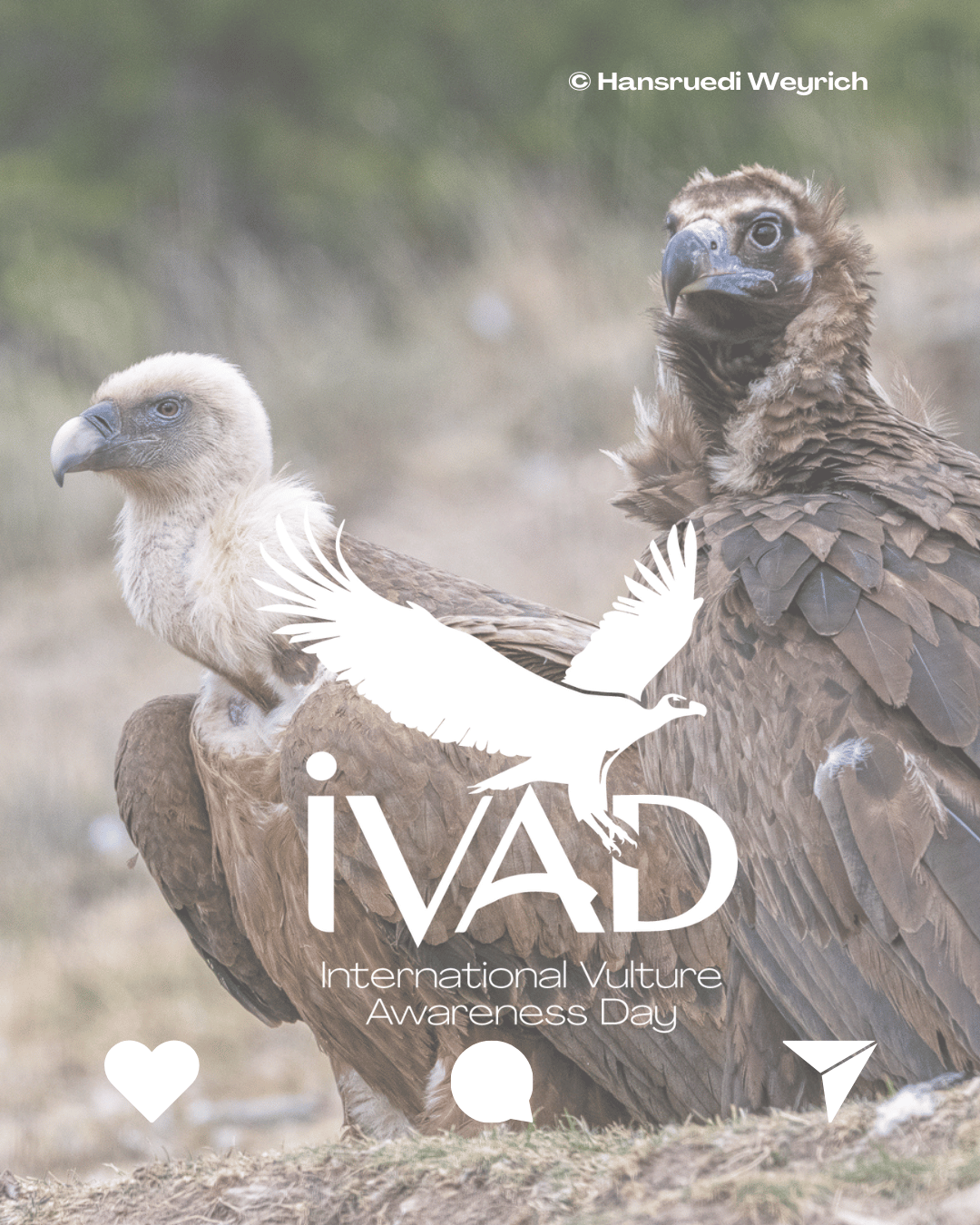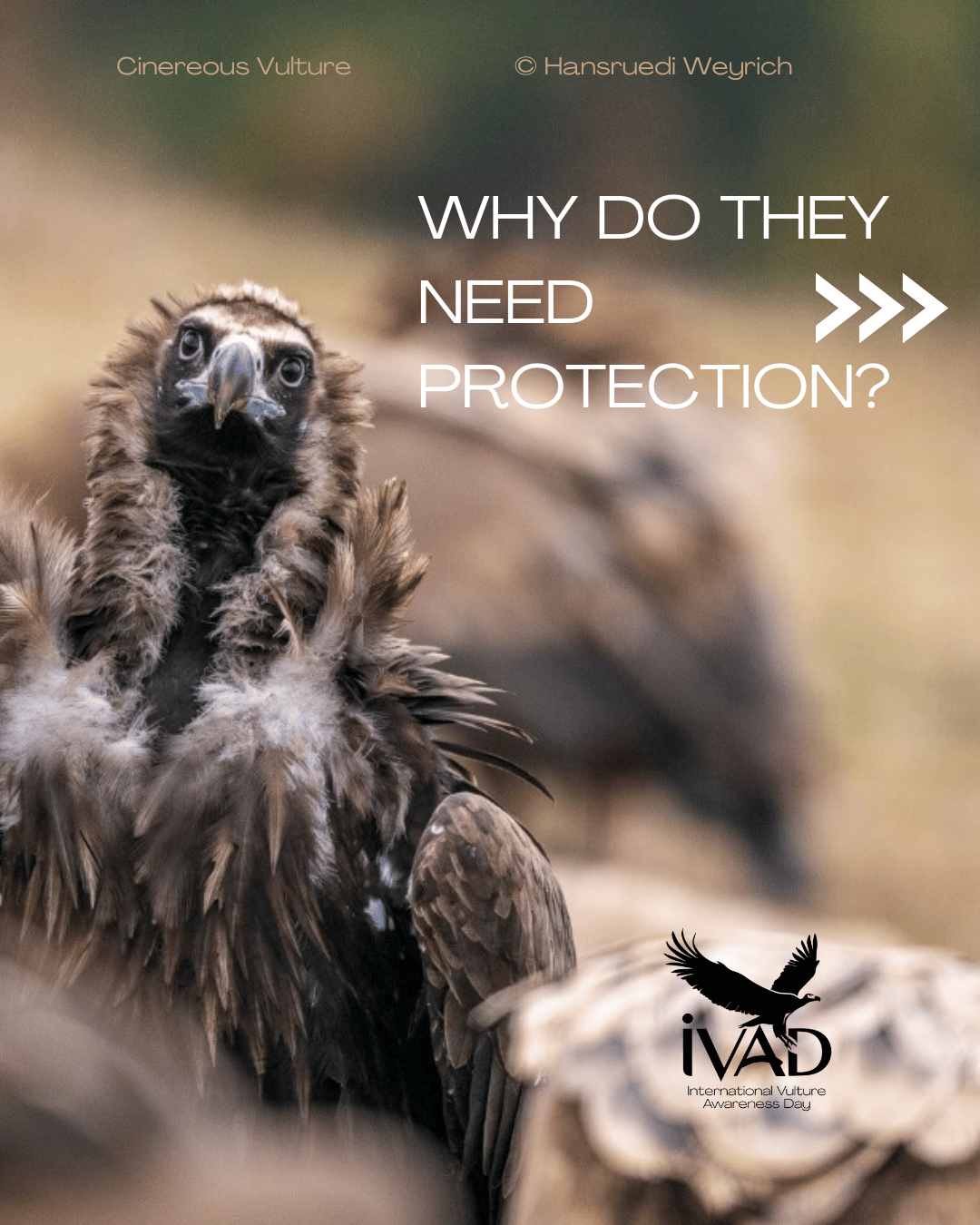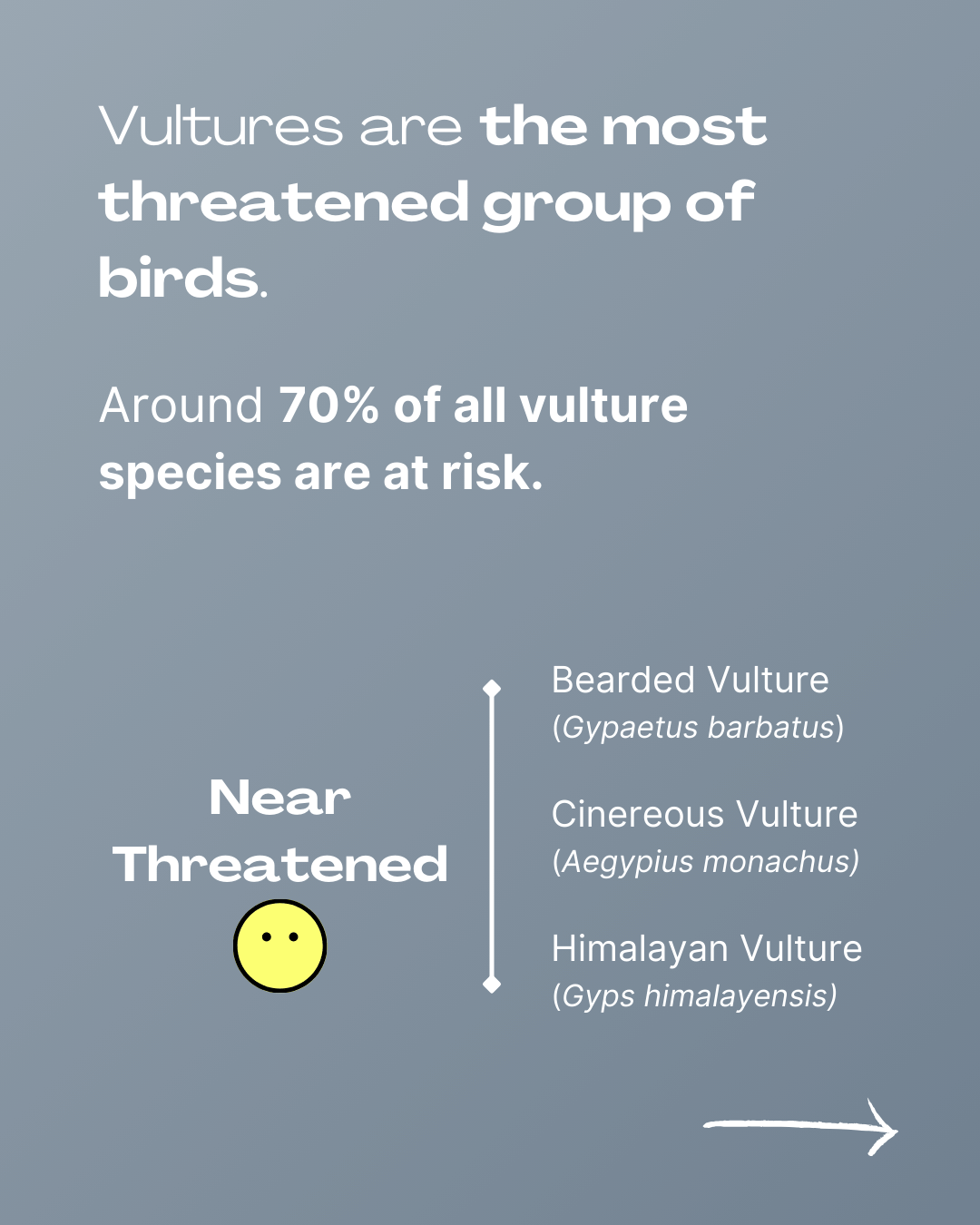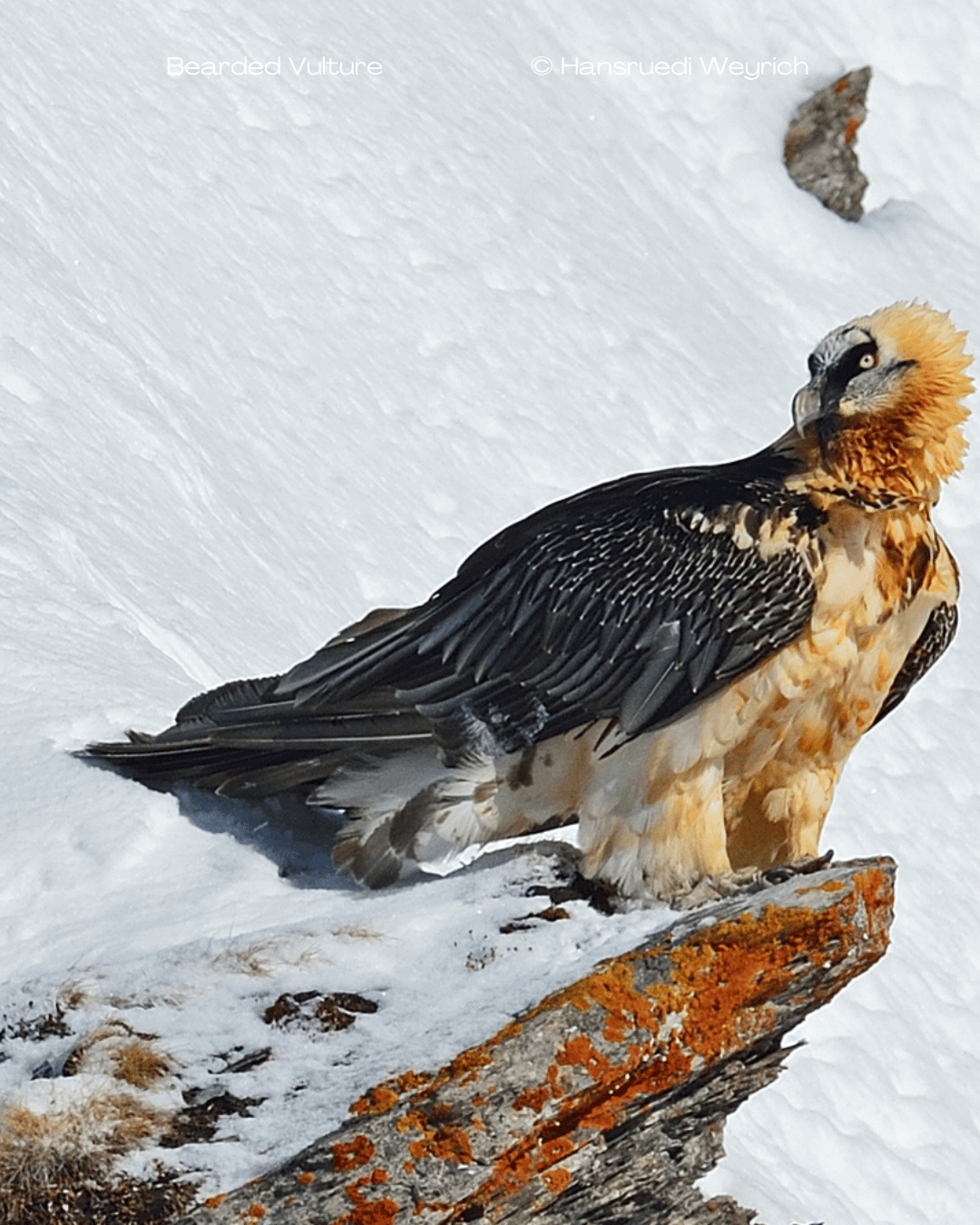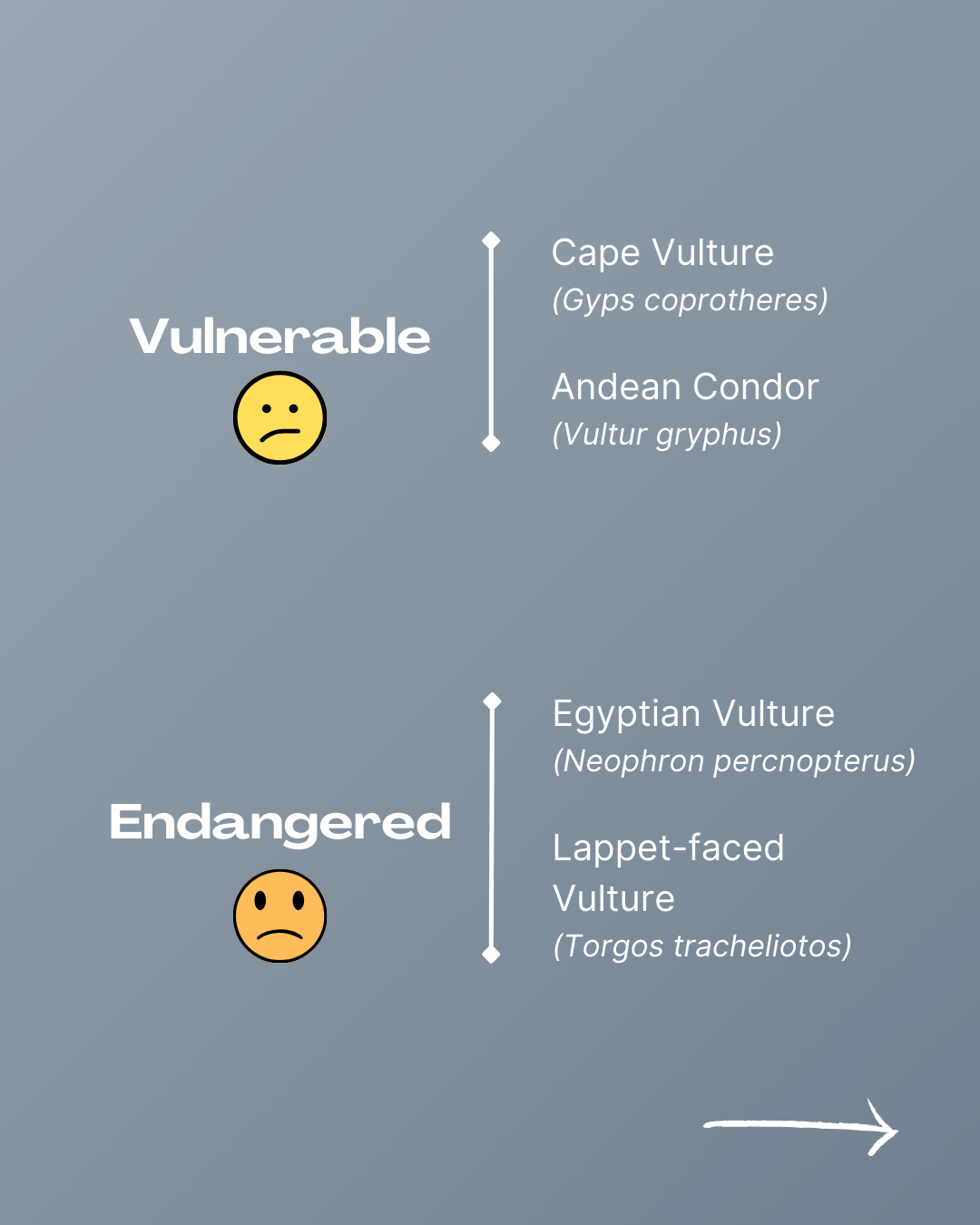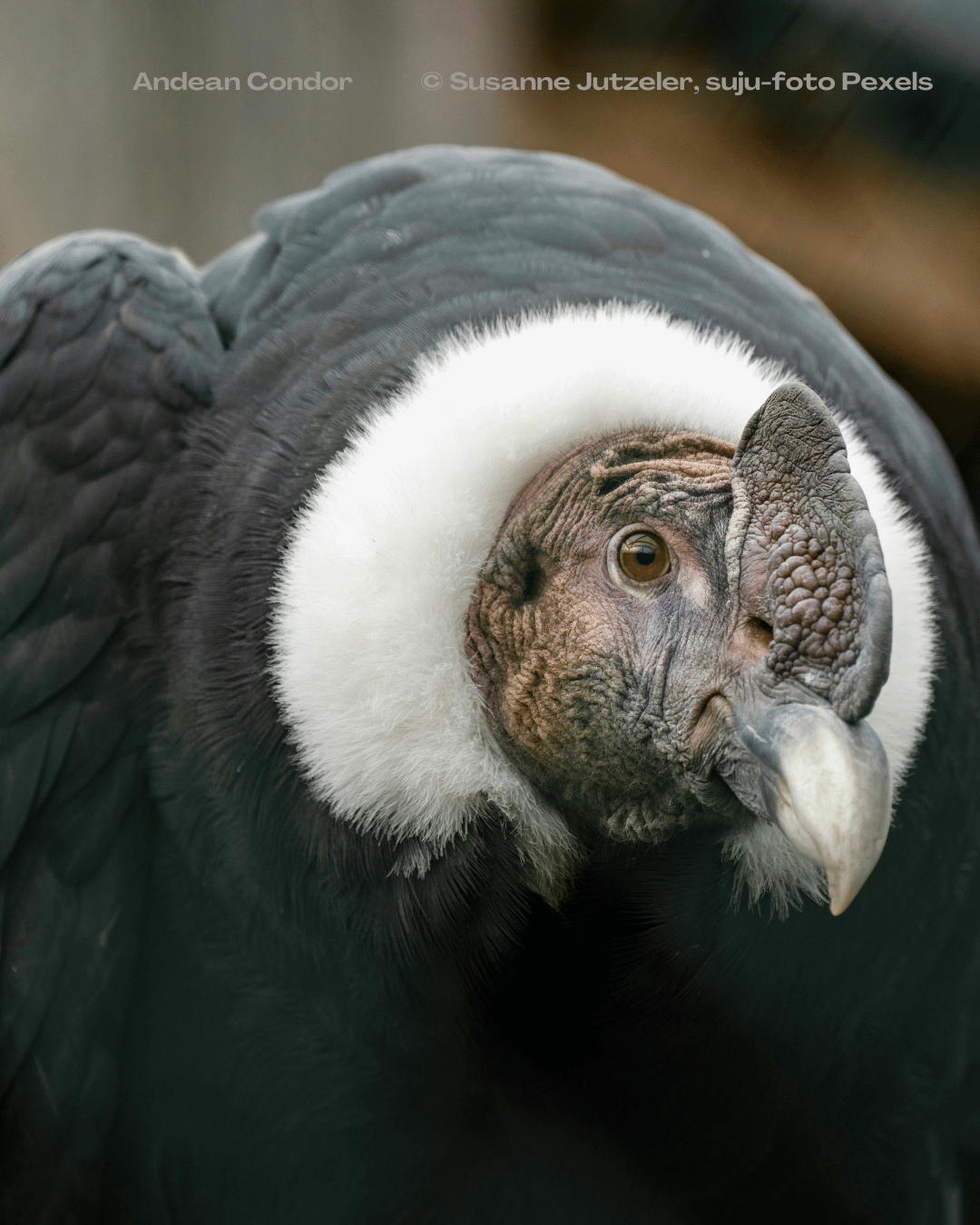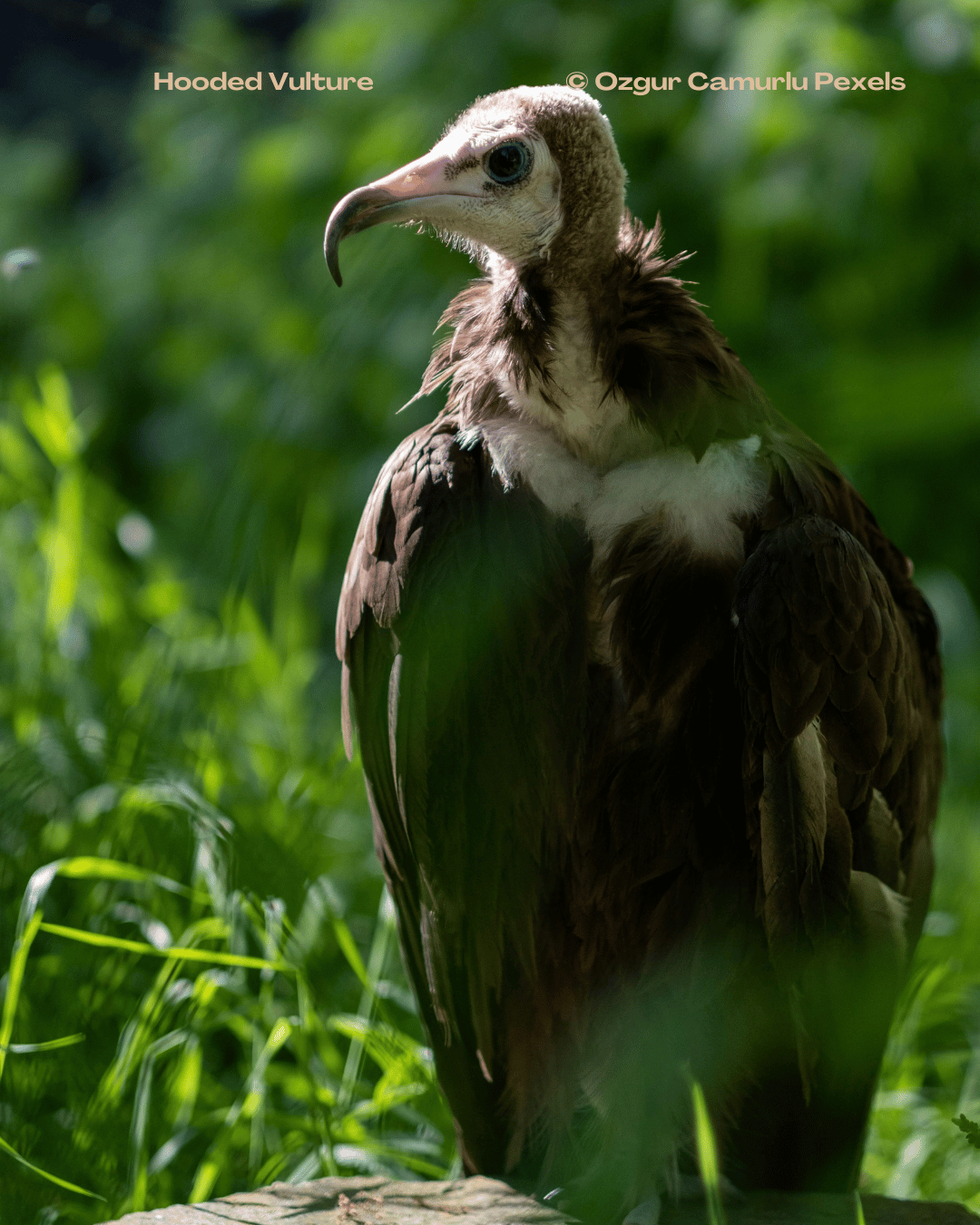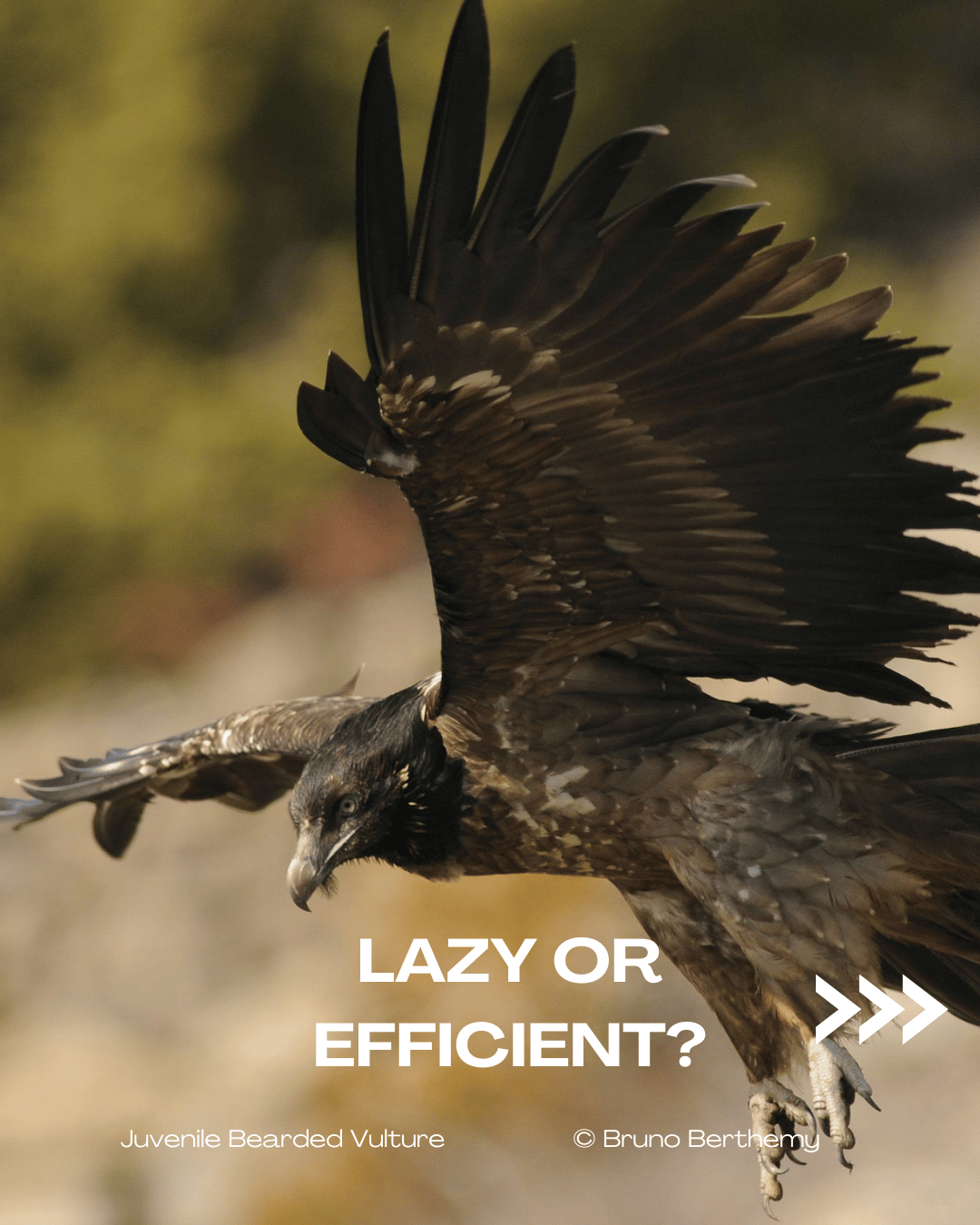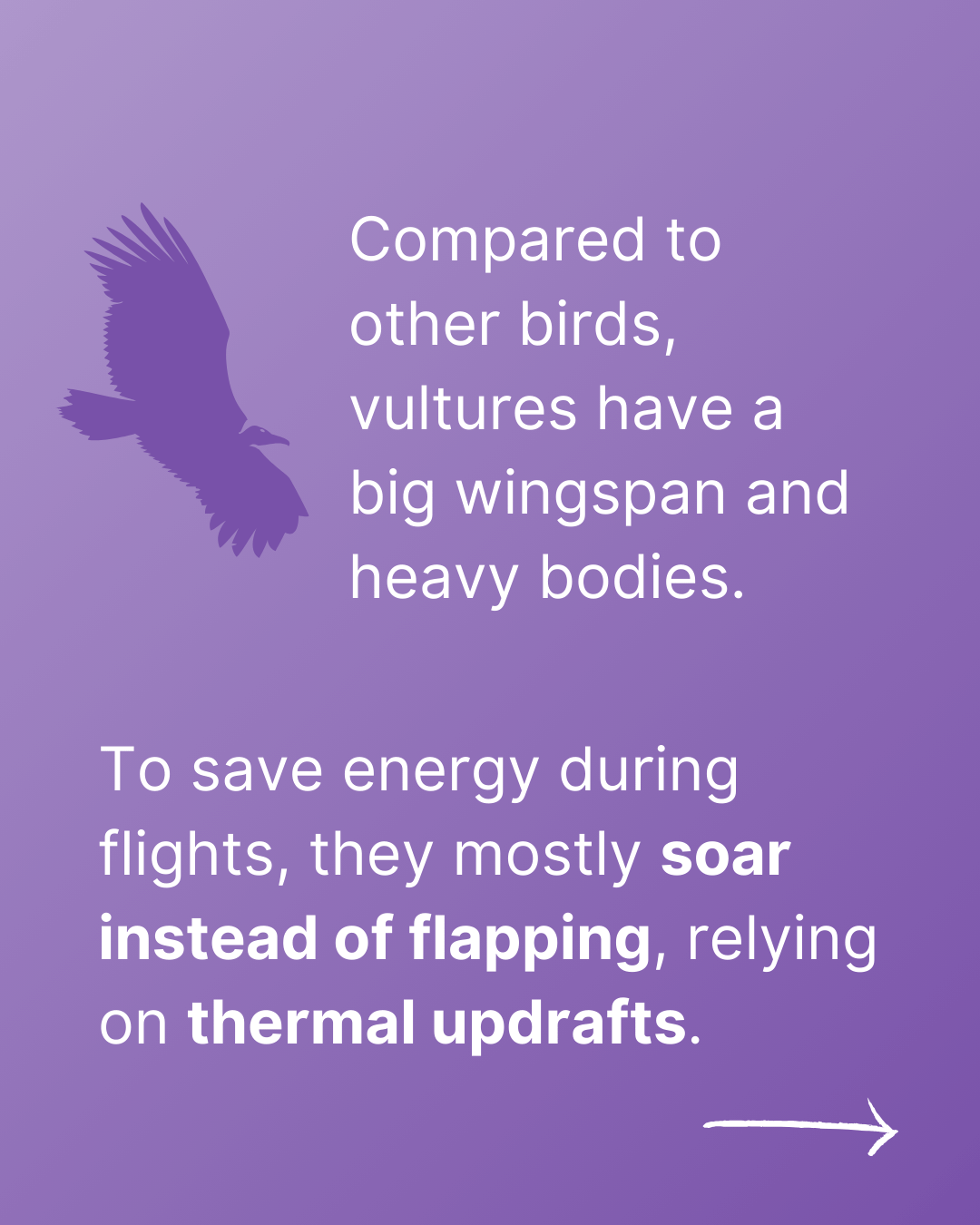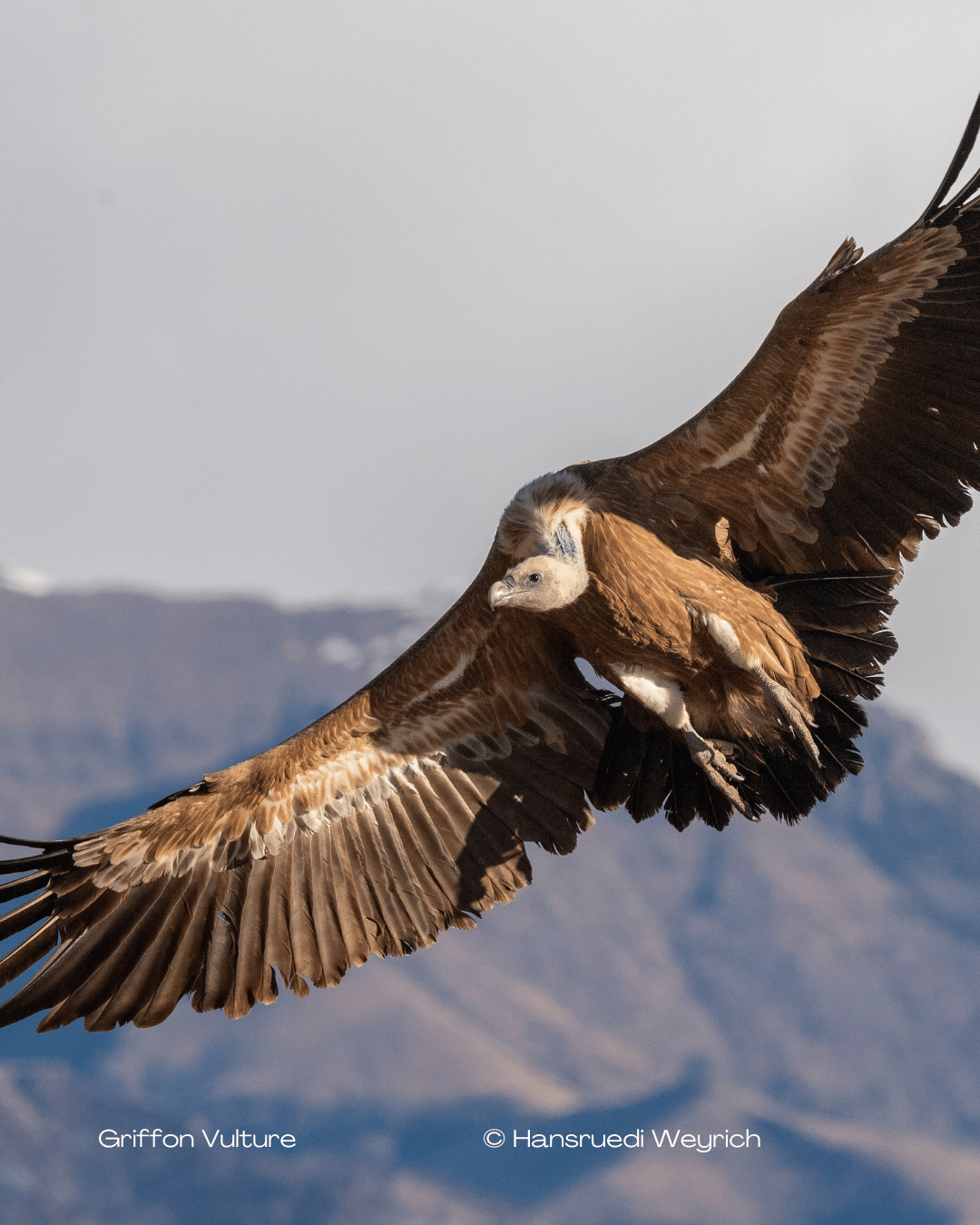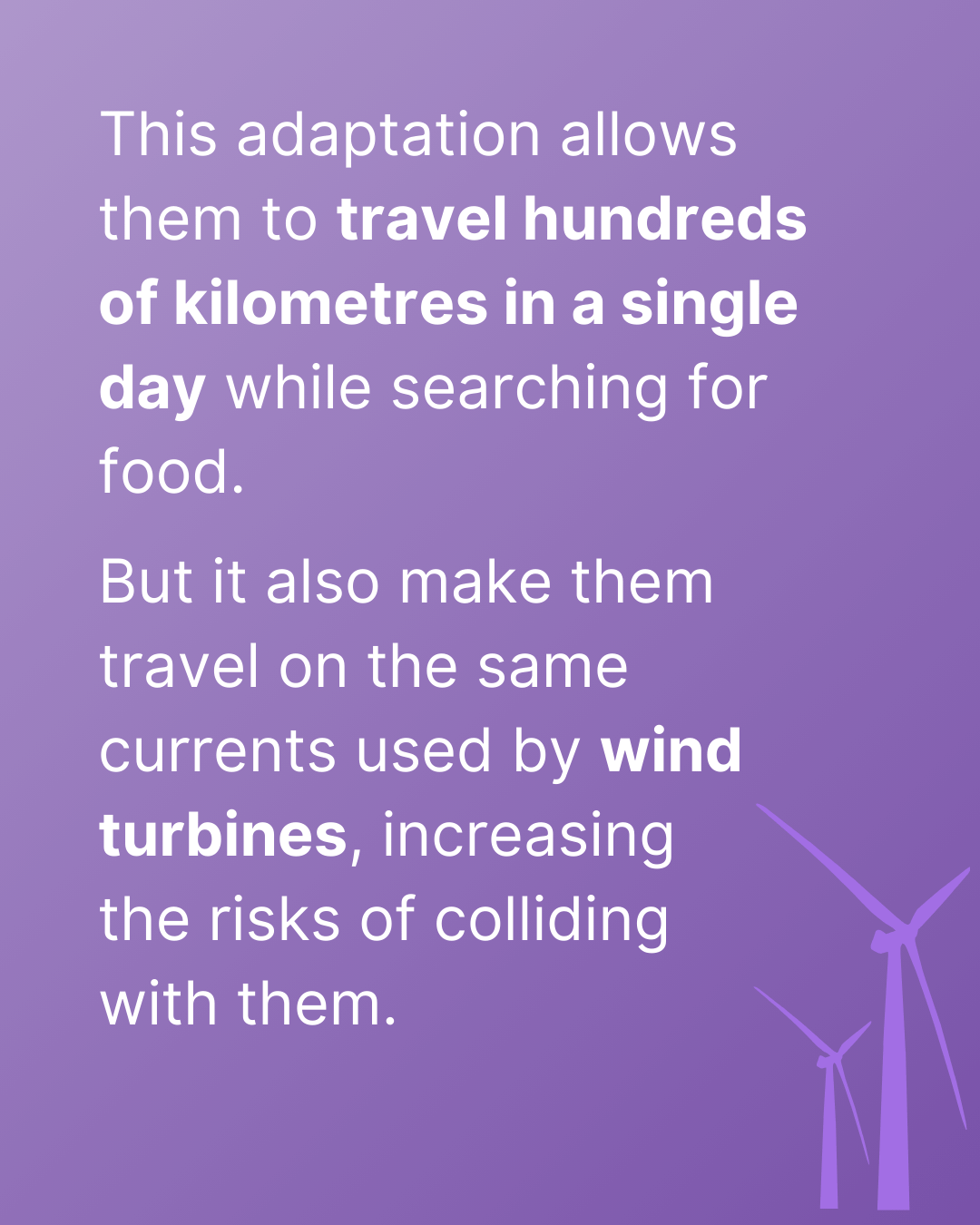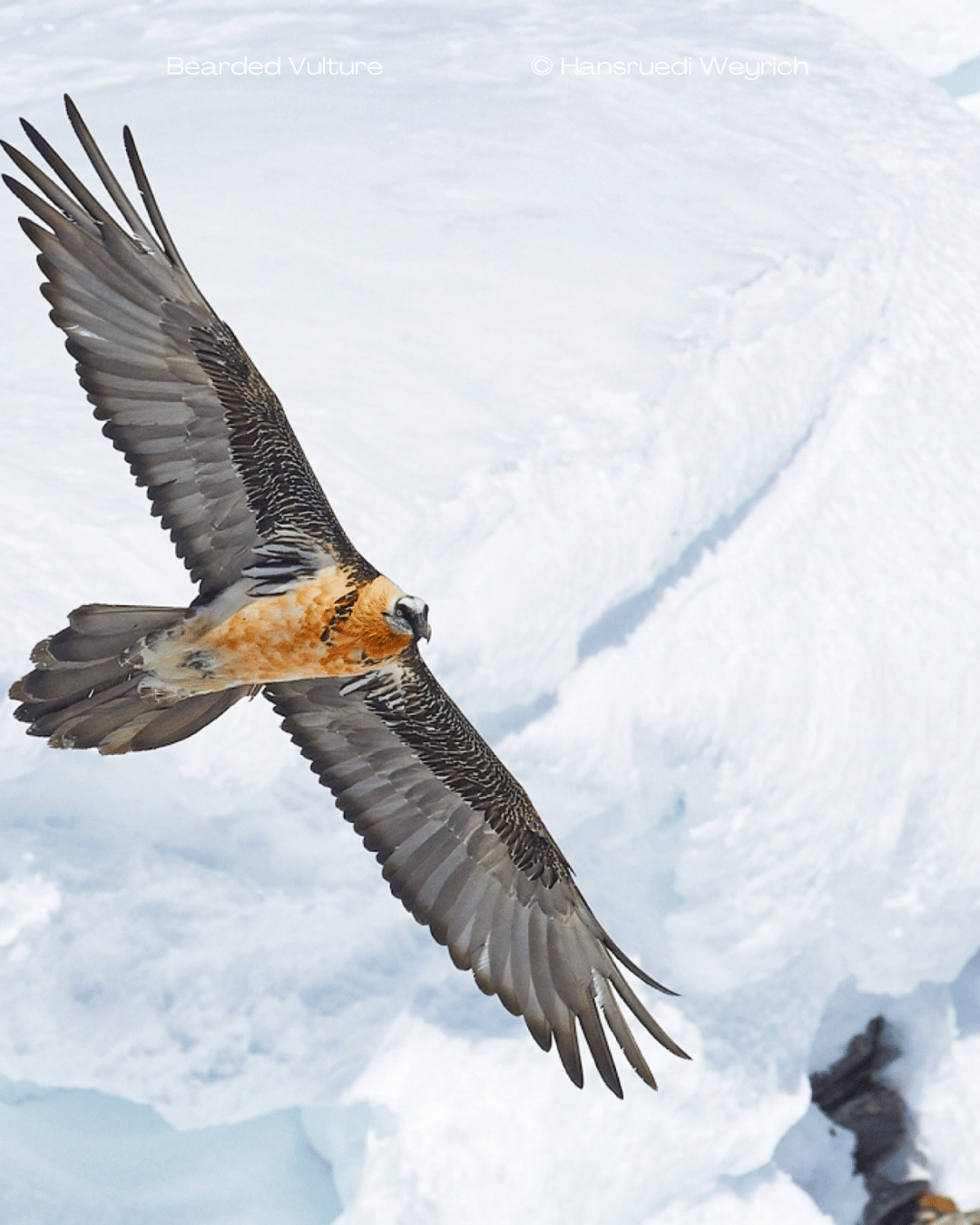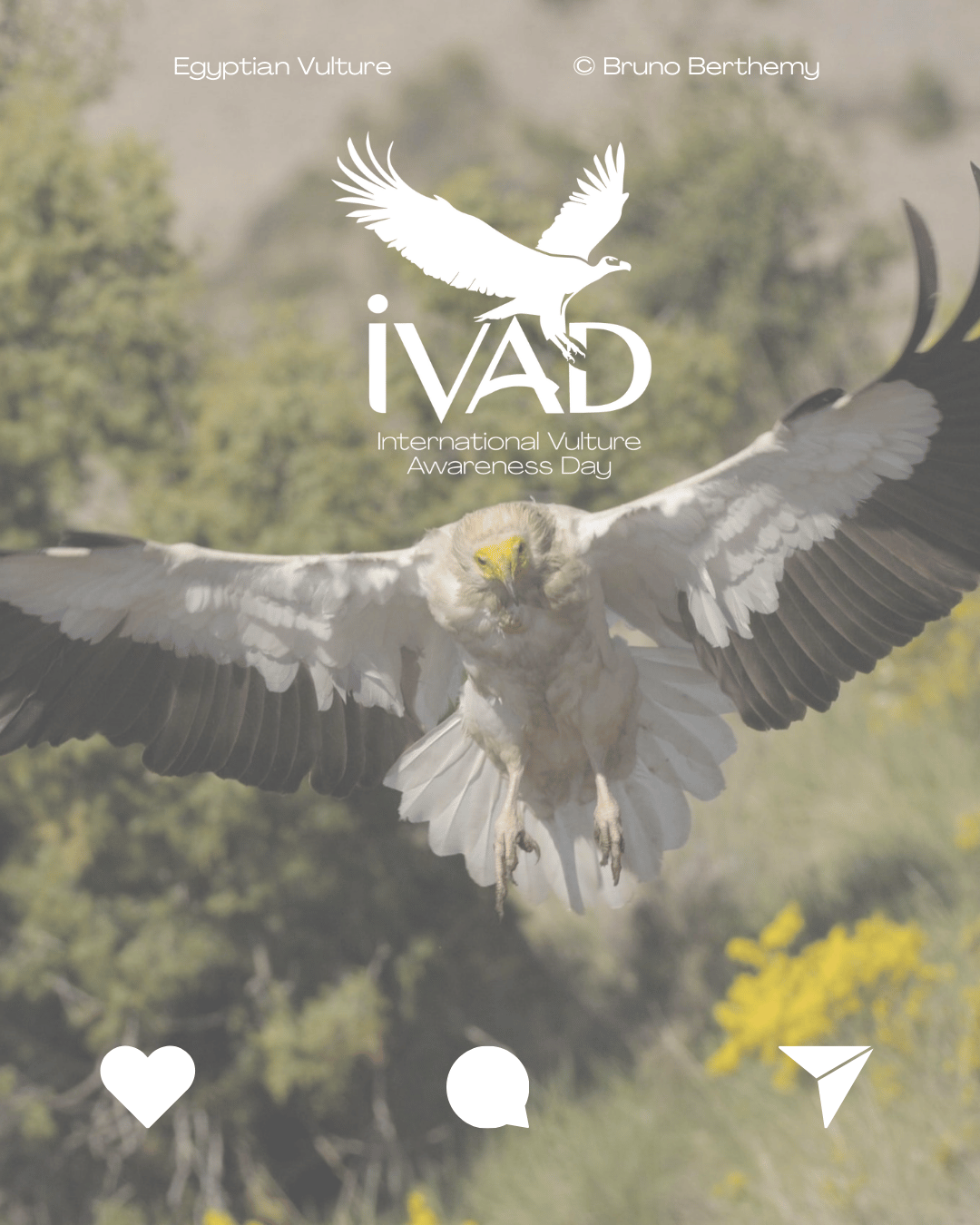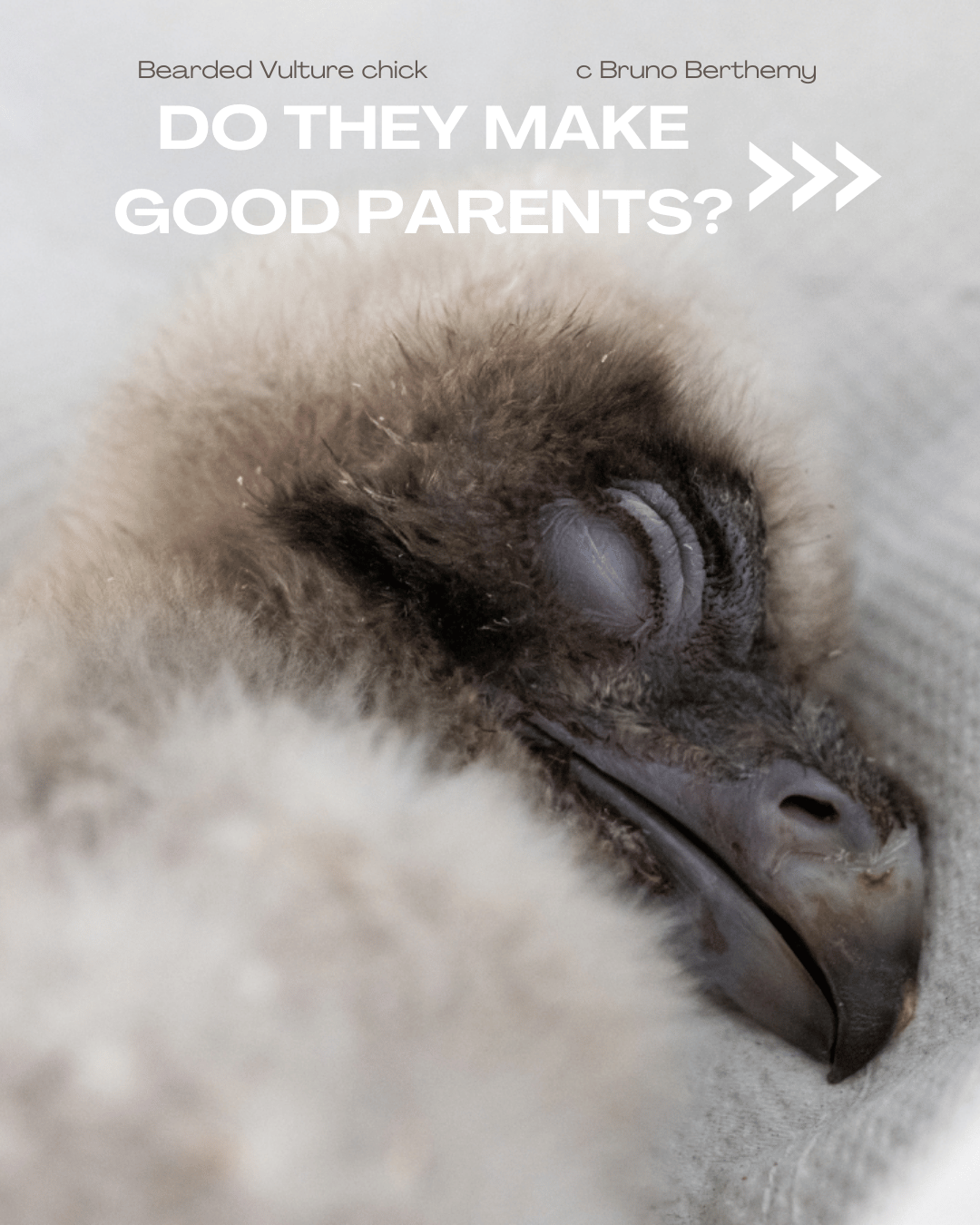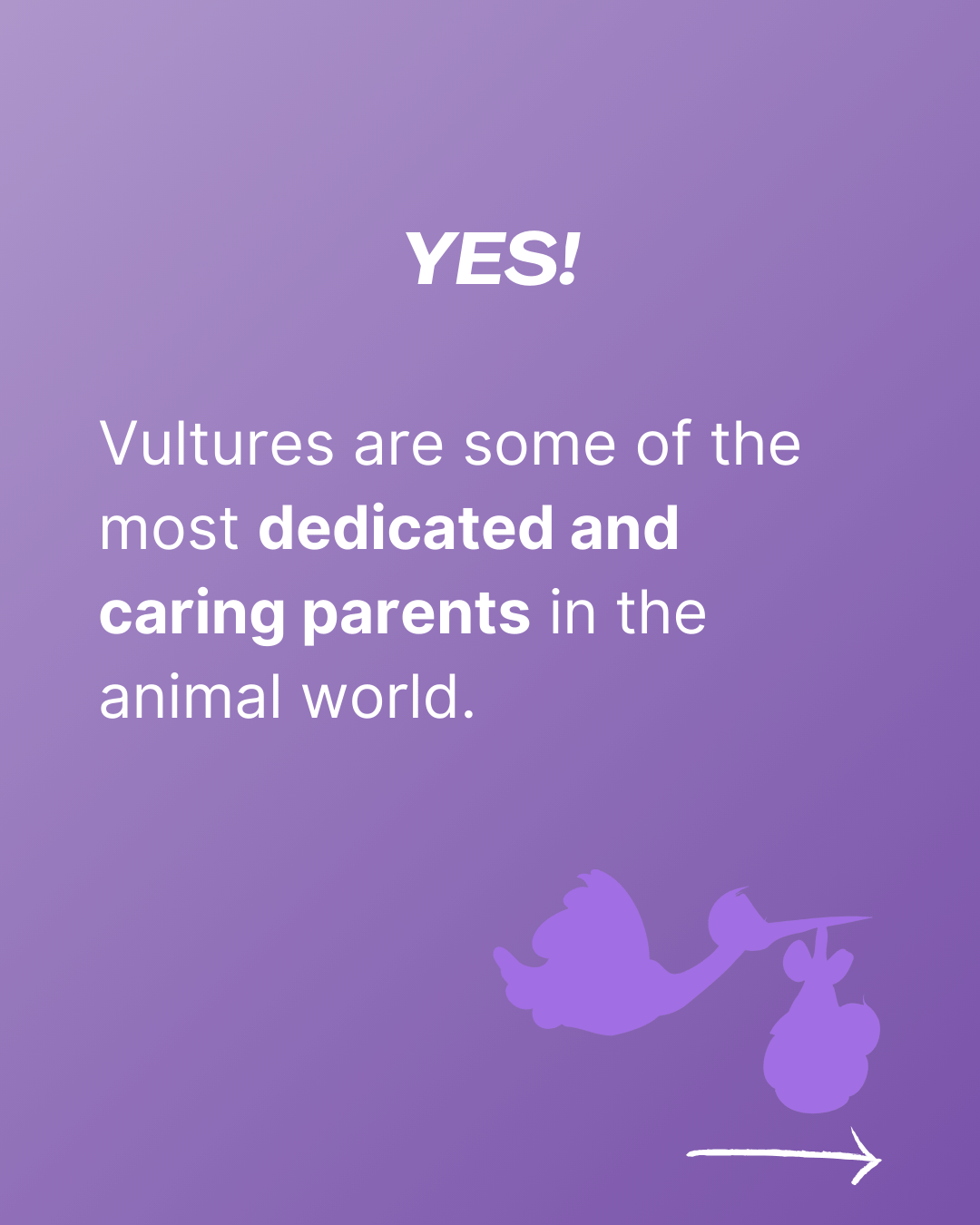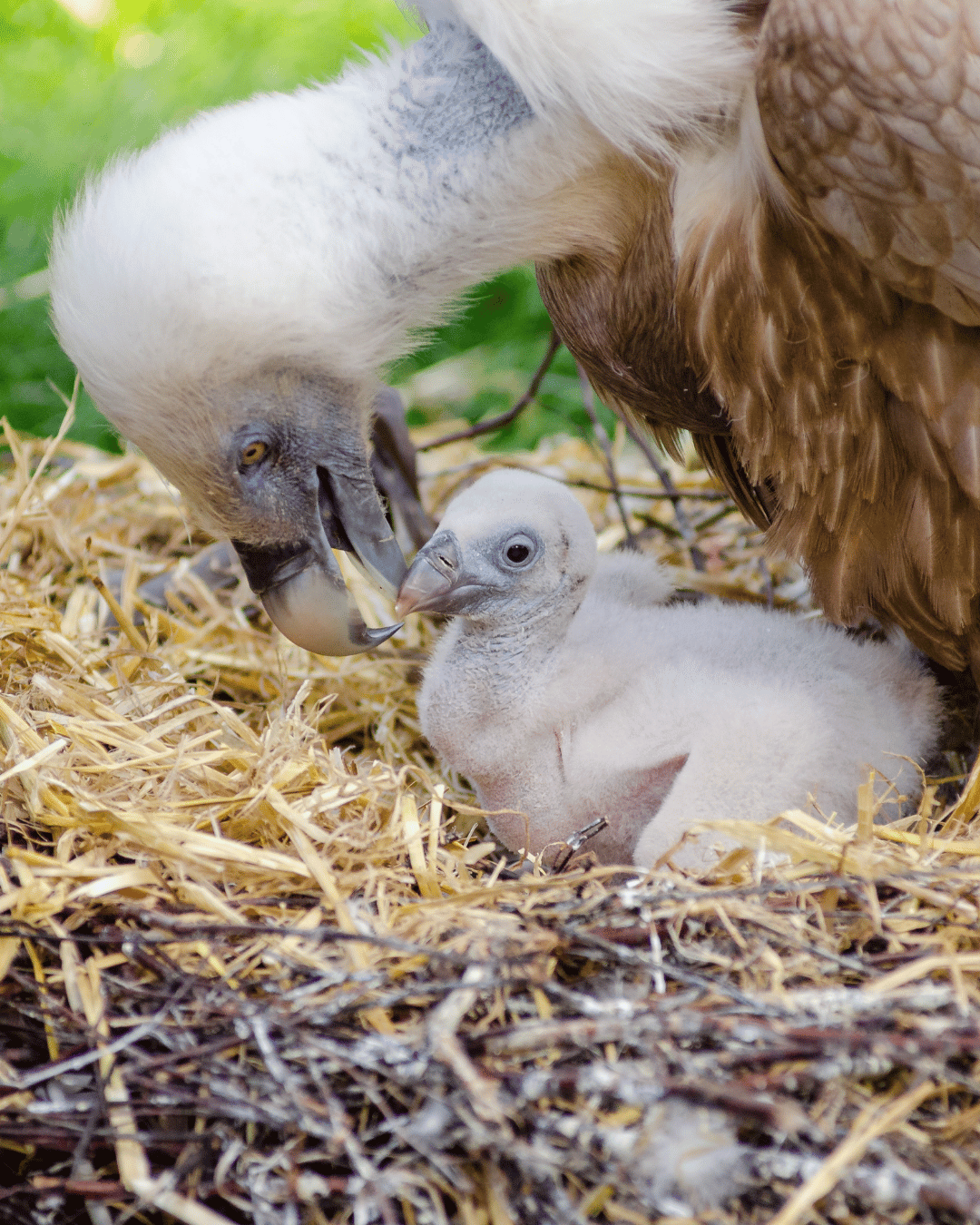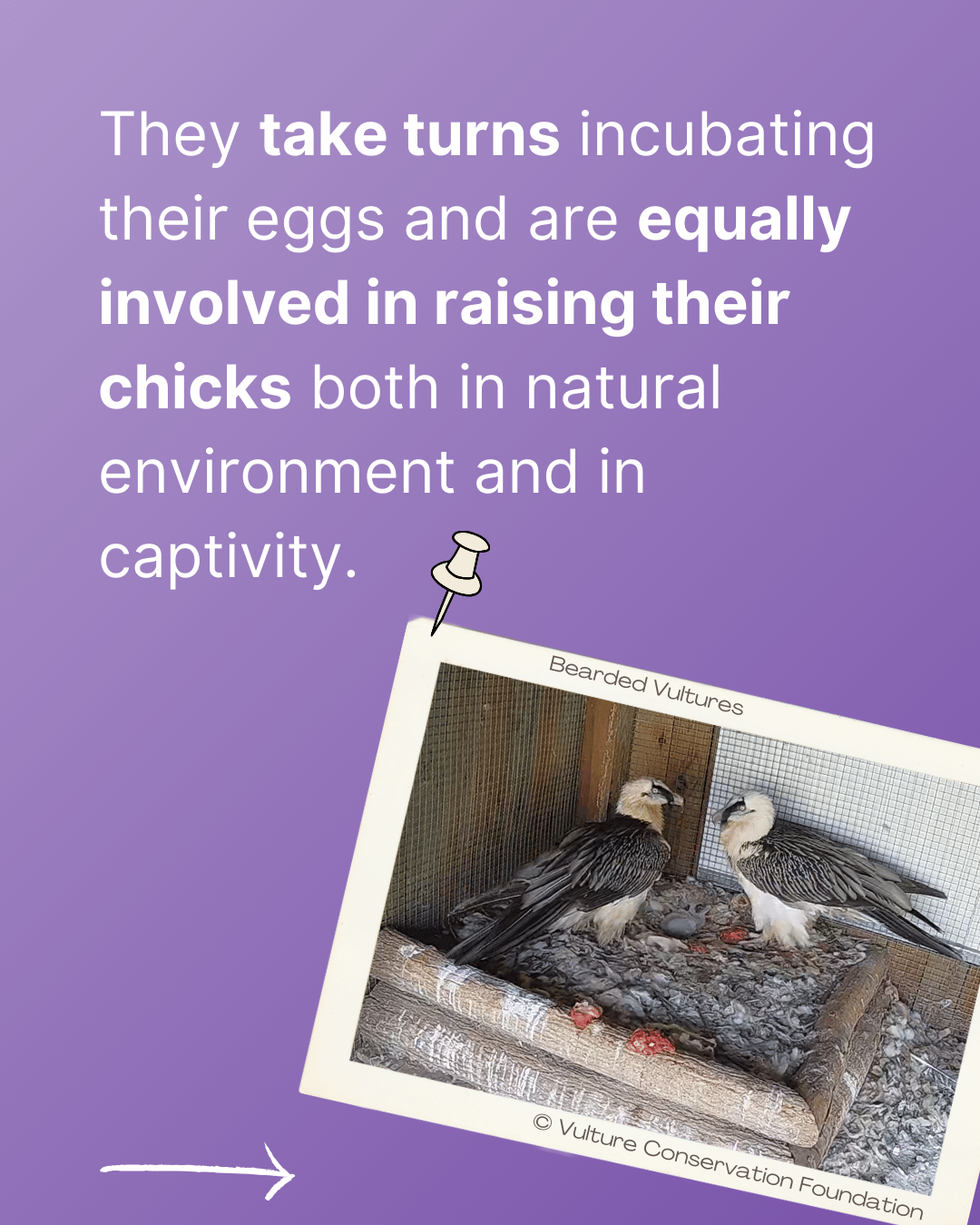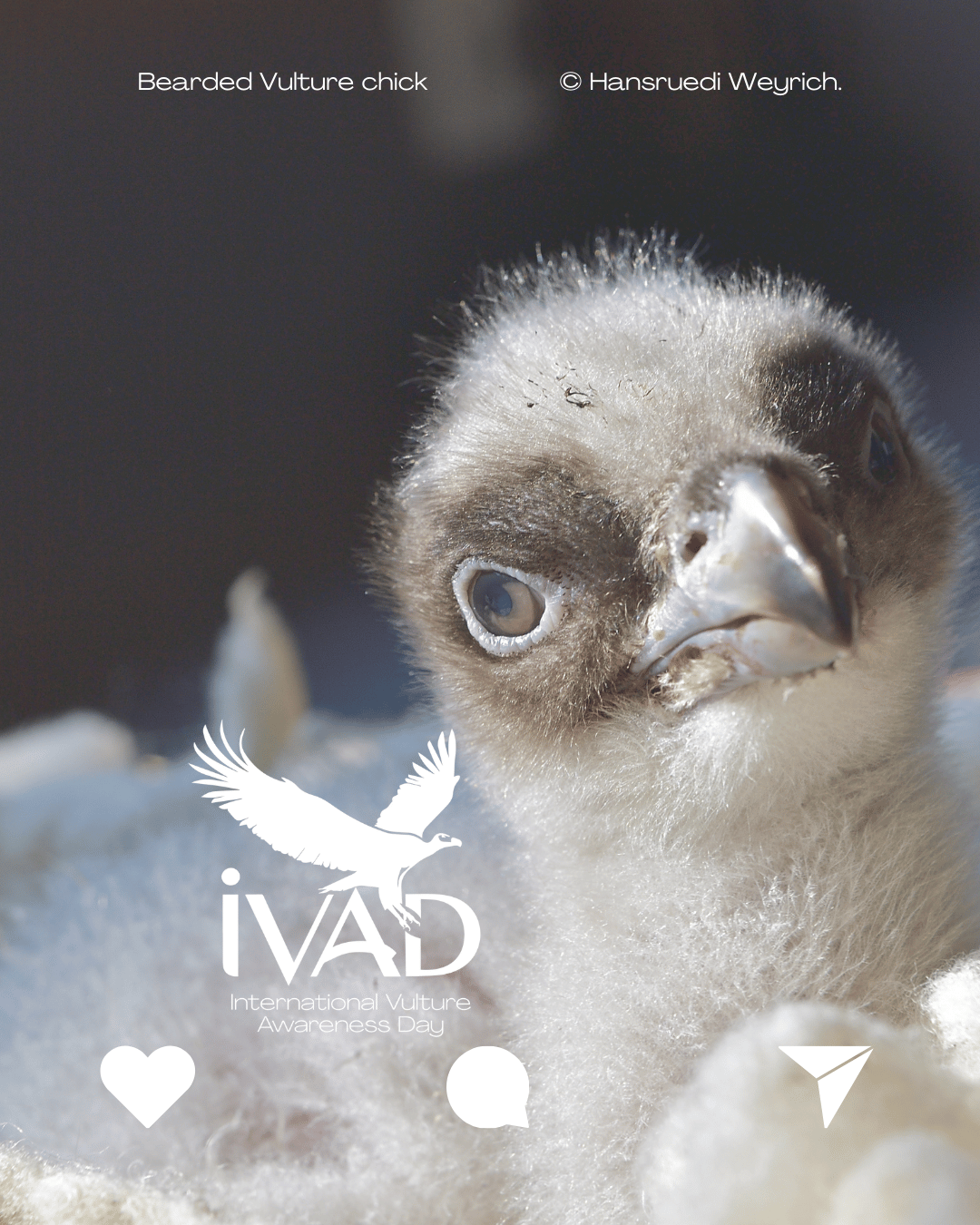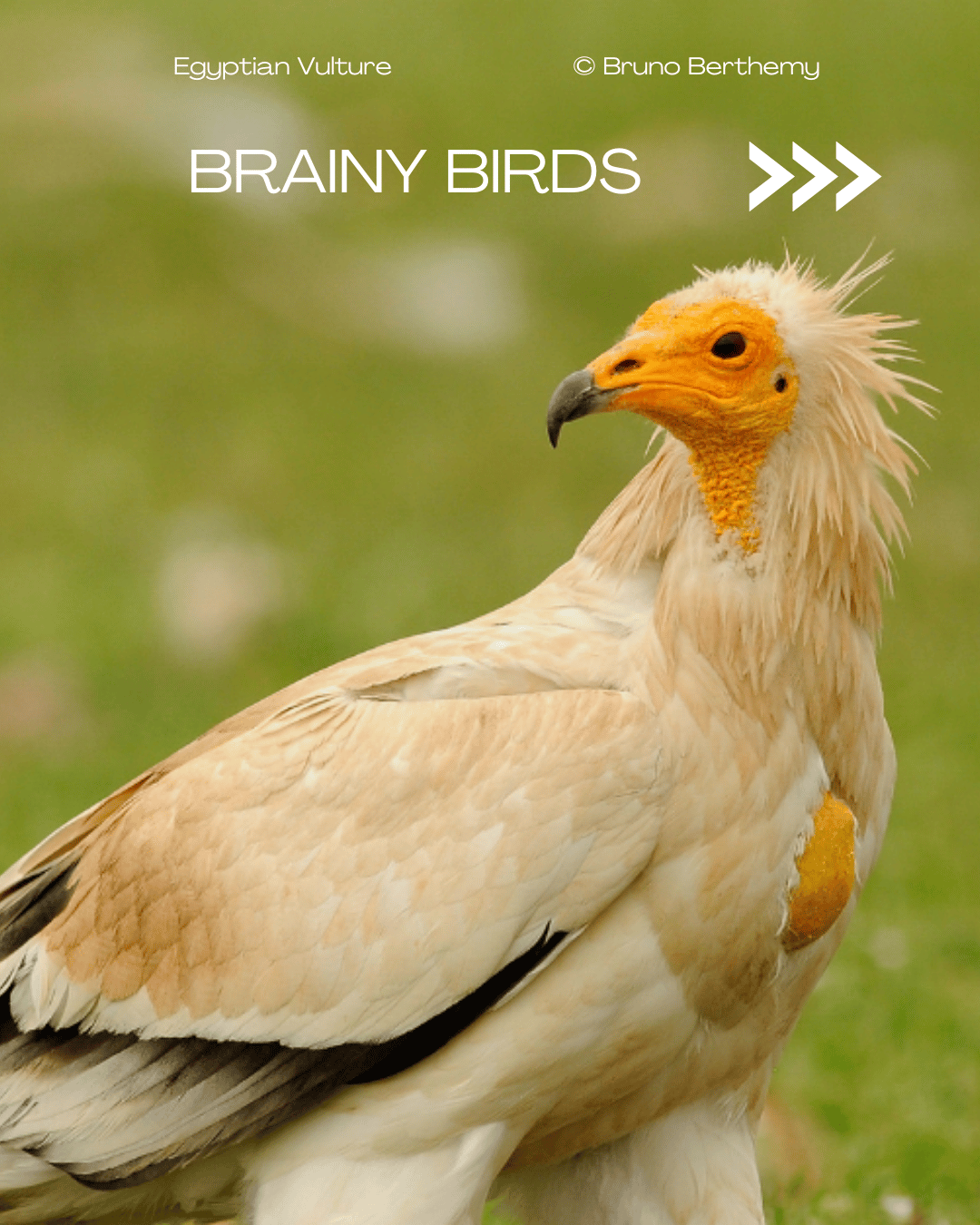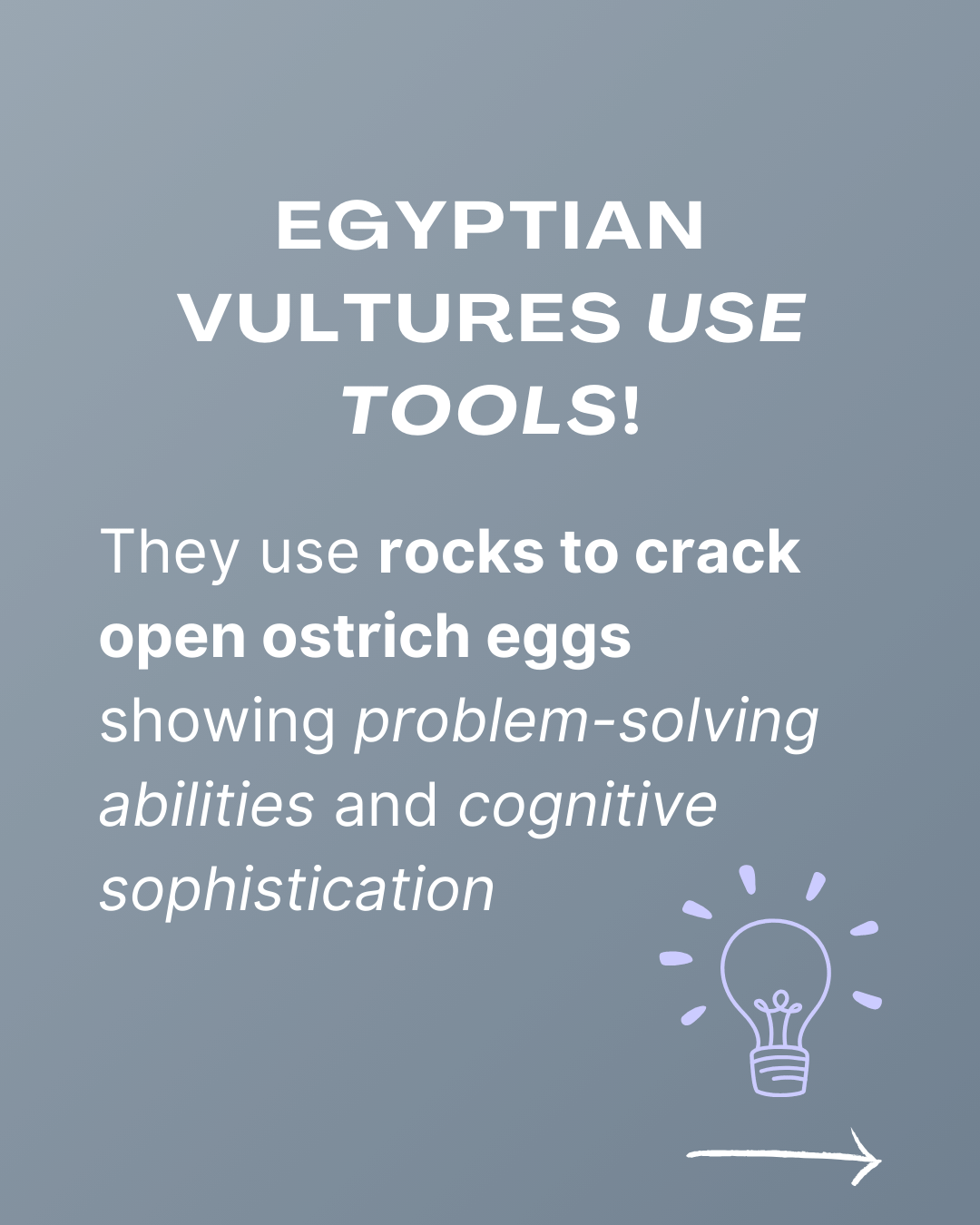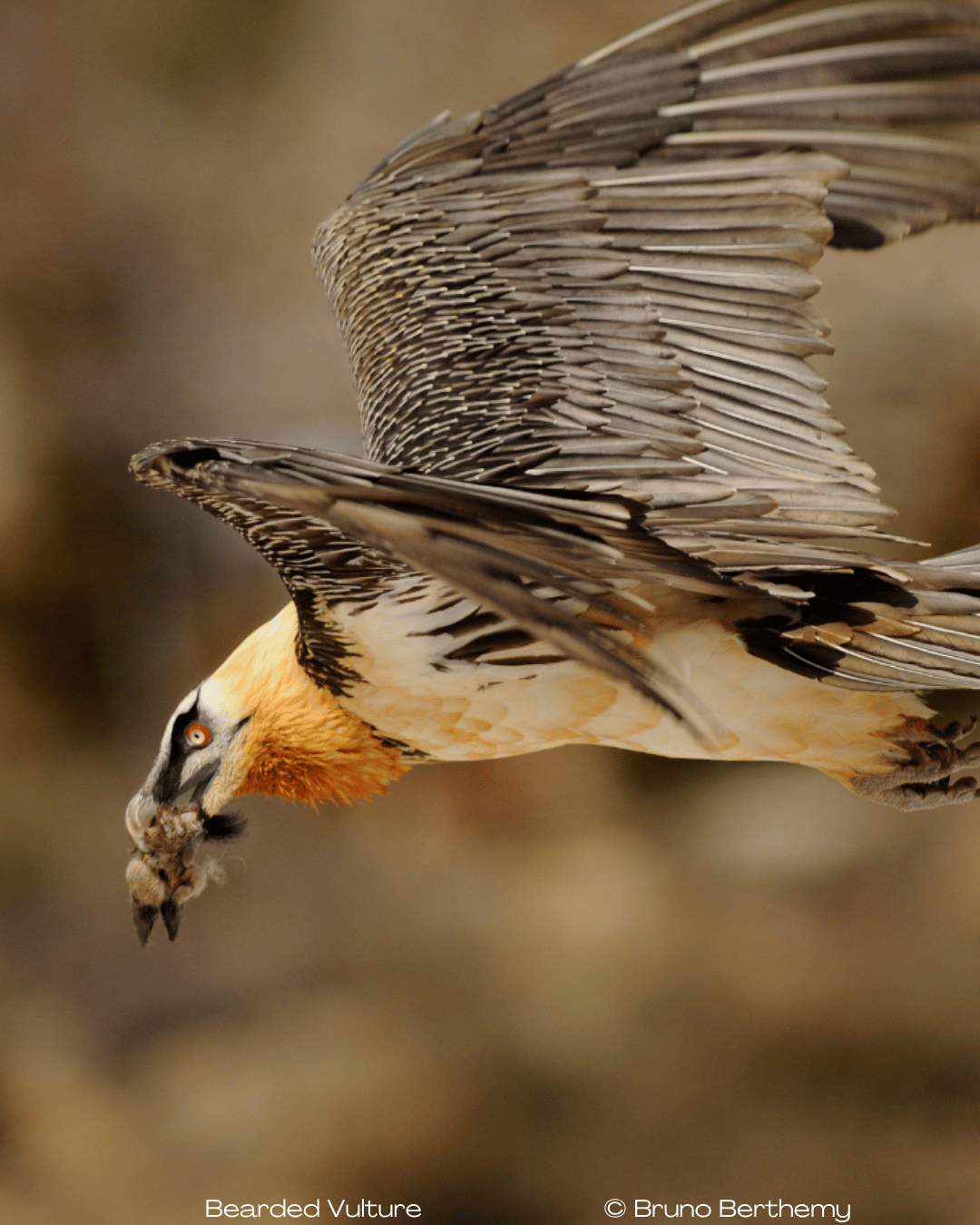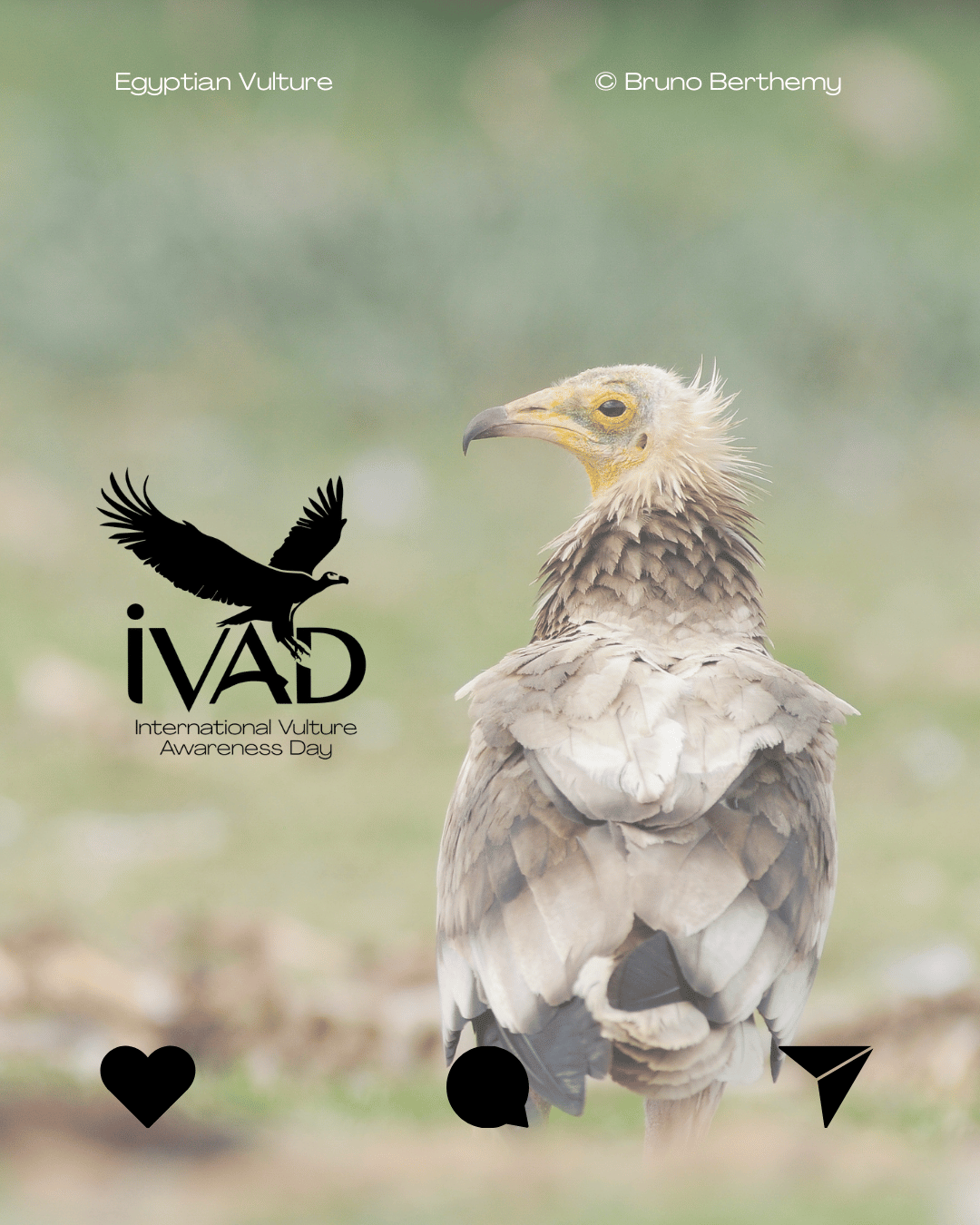
Vultures and Their Essential Role in Ecosystems
On International Vulture Awareness Day (IVAD), we highlight a truth that is often overlooked: vultures are extraordinary creatures whose survival is closely linked to the health of our planet.
Vultures are guardians of ecosystems, skilled travelers, devoted partners, efficient problem-solvers, and even natural allies in the fight against climate change.
Yet, despite their “superpowers,” they face serious threats. Habitat loss, poisoning, collisions with human structures, and declining populations mean that without urgent action, we risk losing not only a species but also the vital services they provide to nature and humanity.
By raising awareness, advocating for safe habitats, and reminding others of their abilities, we contribute to a future where these irreplaceable birds continue to soar and maintain the balance of our ecosystems.
Let us appreciate, protect, and learn from vultures, nature’s silent heroes.
Vultures: Nature’s clean up crew
When you see vultures circling high above, their dark silhouettes might seem ominous. For centuries, myths and misconceptions have cast them as symbols of death. But the reality is far more fascinating, vultures are guardians of balance, playing one of the most critical roles in nature’s cycle of life.
In less than an hour, a group of vultures can clean up what would otherwise become a dangerous breeding ground for disease. Their unique biology gives them superpowers no other animal possesses. With stomachs so acidic that almost no bacteria can survive, vultures can safely consume carcasses teeming with pathogens that would be deadly to other wildlife. By doing so, they prevent the spread of diseases like anthrax, rabies, and botulism, protecting ecosystems and communities alike.
But their impact doesn’t stop there. Every carcass consumed is a small act of recycling: nutrients are returned to the soil, enriching the land and ensuring the cycle of life continues. Without vultures, these nutrients would be lost, and decaying carcasses would linger, threatening the health of entire ecosystems.
Sadly, despite their importance, vultures are among the most misunderstood and threatened birds on Earth. Poisoning, habitat loss, and human persecution have caused drastic declines in their populations. In some regions, entire species are on the brink of extinction. The loss of vultures is not just a blow to biodiversity, it is a direct risk to human health and wellbeing.
That is why we must rethink the way we see them. Not as harbingers of death, but as nature’s most efficient cleaners silent, tireless heroes who keep our planet safe and healthy.
By protecting vultures, we are protecting
Vultures as loyal partners
We often admire vultures for their extraordinary role in keeping ecosystems clean and safe. But beyond their “superpowers,” these birds also have a softer, more surprising side their lifelong bonds and family lives.
Unlike their misunderstood image, vultures are remarkably loyal. Most species form monogamous pairs, choosing a single partner to share their journey through life. Year after year, these partners return to the same nesting spots, showing an incredible sense of commitment and stability.
Their homes are no ordinary nests. From towering cliffs and quiet caves to the tops of tall trees, vultures carefully select secluded places where they can raise their young in peace. Once built, the nest becomes a lasting foundation for their family a structure that is repaired and expanded season after season. In the case of the cinereous vulture, this dedication results in nests that can grow over two meters wide, among the largest of any bird in the world.
These gestures of care reflect not only their loyalty to their partners but also their devotion to the survival of their chicks. Both parents share the responsibility of incubating eggs and feeding their young, working together with quiet dedication.
From sky-soaring heroes to devoted soulmates, vultures remind us that love and partnership are universal forces in nature. Their relationships are a testament to resilience, cooperation, and the bonds that make survival possible in even the harshest landscapes.
Protecting vultures means protecting both the strength and the tenderness that keep the wild in balance.
Vultures: Threatened birds
We’ve uncovered the extraordinary powers of vultures, their role as nature’s clean-up crew and their loyalty to lifelong partners. But now comes the urgent truth: vultures are in danger, and their survival hangs by a thread.
Today, vultures are the most threatened group of birds in the world. Nearly 70% of vulture species are at risk of extinction, facing a storm of human-driven threats. Once they soared in great numbers across skies, but now their silence is growing louder.
The greatest danger comes from poisoning both intentional and accidental. In some regions, carcasses laced with poison are left to kill predators, and vultures, drawn to their natural role as scavengers, fall victim by the dozens or even hundreds. At the same time, poaching and the use of vulture parts in traditional practices add further pressure on already declining populations.
Modern development also poses deadly risks. Collisions with energy infrastructure, especially power lines and wind turbines, take a devastating toll. Coupled with habitat destruction from land conversion and human expansion, vultures are losing not only their numbers but also the spaces they need to survive.
The loss of vultures would not only mean the disappearance of an extraordinary group of birds, but also a collapse in the ecological services they provide. Without them, diseases could spread more quickly, carcasses would linger, and ecosystems as well as human health would face severe consequences.
Behind their strength and loyalty lies this troubling truth: vultures need urgent protection.
Protecting vultures means safeguarding ecosystems, preventing the spread of disease, and preserving the balance of life itself. Their decline is not just a conservation issue, it’s a wake-up call.
Vultures: Masters of the Sky
At first glance, vultures may look lazy as they drift silently across the sky. Unlike smaller birds that flap constantly, vultures seem to hang almost motionless in the air. But this is no sign of idleness it is a sign of brilliance. Vultures are among nature’s most efficient flyers, perfectly adapted to cover vast distances with minimal effort.
With their enormous wingspans and heavy bodies, vultures are not built for constant flapping. Instead, they rely on the power of the sun. Rising columns of warm air, lift them high into the sky. From there, they can glide for hours, conserving precious energy while scanning the land below for food. Thanks to this strategy, a single vulture can cover hundreds of kilometers in a single day, ensuring that no part of the ecosystem is left uncleaned.
This energy-saving superpower, however, comes with new dangers in today’s world. The same thermal currents vultures depend on often flow through areas filled with wind farms and power lines. While renewable energy is vital for people and the planet, poorly placed infrastructure creates deadly obstacles. Each year, countless vultures are killed in mid-air collisions, making one of their greatest adaptations a source of vulnerability.
Yet, even with these challenges, vultures remain unrivaled in their mastery of the skies. Their effortless flight is a reminder that efficiency in nature is not laziness but wisdom the kind of wisdom refined over millions of years of evolution.
By protecting vultures and ensuring safe skies for them to soar, we safeguard not only a species but also the balance of ecosystems that depend on their flight.
Vultures: Diligent parents
Vultures are some of the most attentive parents in the animal kingdom, working together to raise and protect their young with remarkable care.
Despite their tough appearance, vultures show extraordinary tenderness and teamwork when raising their chicks. Unlike many bird species where responsibilities fall unevenly, vulture parenting is a true partnership. Both mother and father share the duties, taking turns incubating their eggs and ensuring the nest remains safe and secure.
Once the chicks hatch, the cooperation continues. Parents work side by side to feed and protect their offspring, investing months of care into giving the next generation the best chance of survival. In captivity, this same dedication shines through pairs remain equally involved, proving that their instincts for teamwork and care are deeply ingrained.
For species like the cinereous vulture, whose chicks need nearly four months of care before they can leave the nest, this commitment is vital. Without such dedication, survival rates would plummet. Instead, through their cooperation, vulture parents raise strong, capable fledglings ready to take on the skies.
Behind their silent, soaring presence is a softer truth: vultures are not only nature’s clean-up crew, but also symbols of loyalty, cooperation, and family care.
Protecting them means safeguarding not just their ecological role, but also the remarkable family bonds that ensure their survival.
Vultures: Brainy birds
When we think of vultures, intelligence may not be the first trait that comes to mind. Yet these remarkable birds are not only nature’s clean-up crew they are also problem solvers with clever strategies that reveal just how sophisticated they can be.
Take the Egyptian vulture, for example. Unlike most birds, it is known to use tools, a sign of advanced cognition. When faced with the tough shell of an ostrich egg, the Egyptian vulture doesn’t give up. Instead, it picks up a stone and skillfully hurls it against the egg until it cracks open. This behavior shows a level of problem-solving ability rarely seen in the animal world.
Then there’s the bearded vulture, a true innovator of the skies. Its diet is almost entirely made up of bones but what happens when a bone is too large to swallow? Rather than abandoning the meal, the bearded vulture takes to the air. Flying as high as 100 meters, it drops the bone onto rocky surfaces below, shattering it into manageable pieces. This technique, refined over generations, demonstrates not only ingenuity but also persistence.
These behaviors highlight a different kind of vulture superpower: intelligence. Far from being mindless scavengers, vultures are adaptable, observant, and resourceful qualities that have helped them survive in some of the harshest environments on Earth.
Vultures remind us that true survival depends not only on strength and endurance, but also on creativity and cleverness.
Vultures: Friends of the environment
Vultures are more than nature’s clean-up crew they are also unsung climate heroes. By consuming carrion, these birds prevent enormous amounts of greenhouse gases from being released into the atmosphere. Without vultures, decomposing carcasses would produce massive emissions of carbon dioxide and methane, contributing to climate change and environmental imbalance.
Globally, vulture populations help prevent up to 60–70 teragrams (Tg) of CO₂ from entering the atmosphere each year. To put this into perspective, that’s roughly equivalent to the annual emissions of 12–13 million cars. Every meal a vulture consumes is not just a contribution to a clean ecosystem, it’s a natural act of climate regulation.
By efficiently recycling nutrients and controlling decomposition, vultures play a vital role in reducing greenhouse gas emissions and keeping our planet healthier. Their impact goes far beyond the food chain: they are living, flying agents of sustainability, quietly supporting both biodiversity and the fight against climate change.
Next time you see a vulture soaring above, remember they are not only nature’s custodians but also Earth’s eco-friendly guardians.
